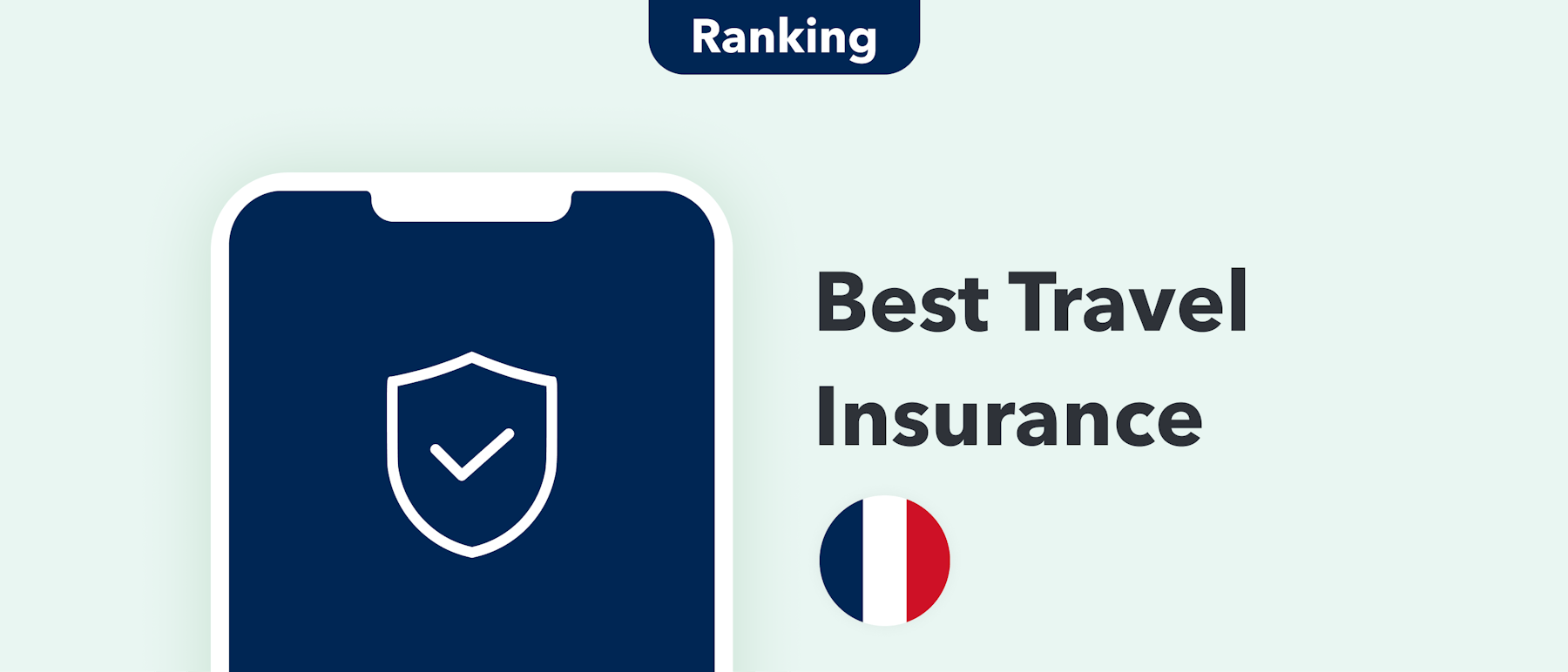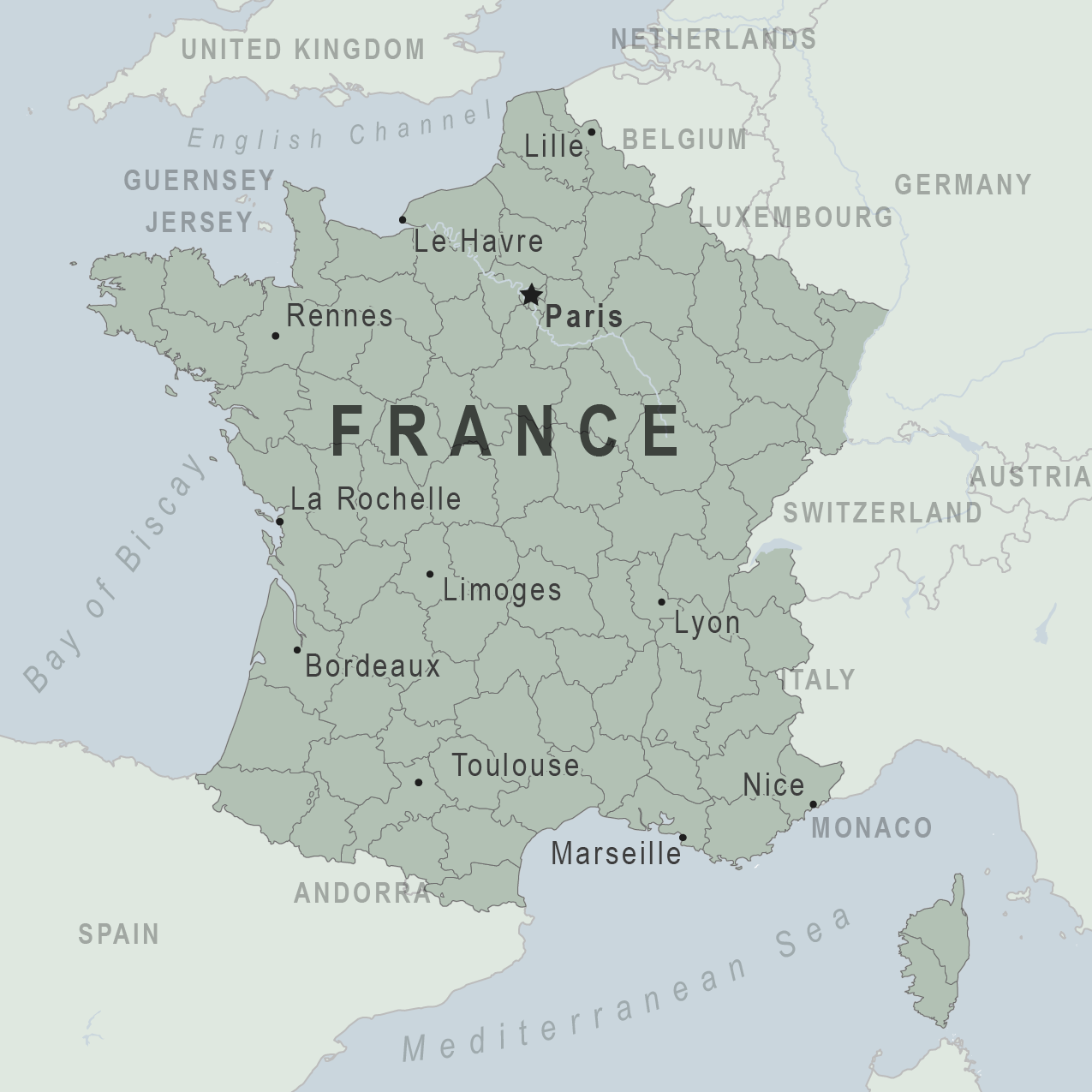- Best Travel Insurance 2024
- Cheapest Travel Insurance
- Trip Cancellation Insurance
- Cancel for Any Reason Insurance
- Seniors' Travel Insurance
- Annual Travel Insurance
- Cruise Insurance
- COVID-19 Travel Insurance
- Travel Medical Insurance
- Medical Evacuation Insurance
- Pregnancy Travel Insurance
- Pre-existing Conditions Insurance
- Mexico Travel Insurance
- Italy Travel Insurance
- France Travel Insurance
- Spain Travel Insurance
- Canada Travel Insurance
- UK Travel Insurance
- Germany Travel Insurance
- Bahamas Travel Insurance
- Costa Rica Travel Insurance
- Disney Travel Insurance
- Schengen Travel Insurance
- Is travel insurance worth it?
- Average cost of travel insurance
- Is airline flight insurance worth it?
- Places to travel without a passport
- All travel insurance guides
- Best Pet Insurance 2024
- Cheap Pet Insurance
- Cat Insurance
- Pet Dental Insurance
- Pet Insurance That Pays Vets Directly
- Pet Insurance For Pre-Existing Conditions
- Pet Insurance with No Waiting Period
- Paw Protect Review
- Spot Pet Insurance Review
- Embrace Pet Insurance Review
- Healthy Paws Pet Insurance Review
- Pets Best Insurance Review
- Lemonade Pet Insurance Review
- Pumpkin Pet Insurance Review
- Fetch Pet Insurance Review
- Figo Pet Insurance Review
- CarePlus by Chewy Review
- MetLife Pet Insurance Review
- Average cost of pet insurance
- What does pet insurance cover?
- Is pet insurance worth it?
- How much do cat vaccinations cost?
- How much do dog vaccinations cost?
- All pet insurance guides
- Best Business Insurance 2024
- Business Owner Policy (BOP)
- General Liability Insurance
- E&O Professional Liability Insurance
- Workers' Compensation Insurance
- Commercial Property Insurance
- Cyber Liability Insurance
- Inland Marine Insurance
- Commercial Auto Insurance
- Product Liability Insurance
- Commercial Umbrella Insurance
- Fidelity Bond Insurance
- Business Personal Property Insurance
- Medical Malpractice insurance
- California Workers' Compensation Insurance
- Contractor's Insurance
- Home-Based Business Insurance
- Sole Proprietor's Insurance
- Handyman's Insurance
- Photographer's Insurance
- Esthetician's Insurance
- Salon Insurance
- Personal Trainer's Insurance
- Electrician's Insurance
- E-commerce Business Insurance
- Landscaper's Insurance
- Best Credit Cards of 2024
- Best Credit Card Sign-Up Bonuses
- Best Instant Approval Credit Cards
- Best Cash Back Credit Cards
- Best Rewards Credit Cards
- Best Credit Cards for Bad Credit
- Best Balance Transfer Credit Cards
- Best College Student Credit Cards
- Best 0% APR Credit Cards
- Best First Credit Cards
- Best No Annual Fee Cards
- Best Travel Credit Cards
- Best Hotel Credit Cards
- Best American Express Cards
- Best Amex Delta SkyMiles Cards
- Best American Express Business Cards
- Best Capital One Cards
- Best Capital One Business Cards
- Best Chase Cards
- Best Chase Business Cards
- Best Citi Credit Cards
- Best U.S. Bank Cards
- Best Discover Cards
- Amex Platinum Card Review
- Amex Gold Card Review
- Amex Blue Cash Preferred Review
- Amex Blue Cash Everyday Review
- Capital One Venture Card Review
- Capital One Venture X Card Review
- Capital One SavorOne Card Review
- Capital One Quicksilver Card Review
- Chase Sapphire Reserve Review
- Chase Sapphire Preferred Review
- United Explorer Review
- United Club Infinite Review
- Amex Gold vs. Platinum
- Amex Platinum vs. Chase Sapphire Reserve
- Capital One Venture vs. Venture X
- Capital One Venture X vs. Chase Sapphire Reserve
- Capital One SavorOne vs. Quicksilver
- Chase Sapphire Preferred vs. Capital One Venture
- Chase Sapphire Preferred vs. Amex Gold
- Delta Reserve vs. Amex Platinum
- Chase Sapphire Preferred vs. Reserve
- How to Get Amex Pre-Approval
- Amex Travel Insurance Explained
- Chase Sapphire Travel Insurance Guide
- Chase Pay Yourself Back
- CLEAR vs. TSA PreCheck
- Global Entry vs. TSA Precheck
- Costco Payment Methods
- All Credit Card Guides
- Citibank Savings Account Interest Rate
- Capital One Savings Account Interest Rate
- American Express Savings Account Interest Rate
- Western Alliance Savings Account Interest Rate
- Barclays Savings Account Interest Rate
- Discover Savings Account Interest Rate
- Chase Savings Account Interest Rate
- U.S. Bank Savings Account Interest Rate
- Marcus Savings Account Interest Rate
- Synchrony Bank Savings Account Interest Rate
- Ally Savings Account Interest Rate
- Bank of America Savings Account Interest Rate
- Wells Fargo Savings Account Interest Rates
- SoFi Savings Account Interest Rate
- Best Savings Accounts & Interest Rates
- Best High Yield Savings Accounts
- Best 7% Interest Savings Accounts
- Best 5% Interest Savings Accounts
- Savings Interest Calculator
- Emergency Fund Calculator
- Pros and Cons of High-Yield Savings Accounts
- Types of Savings Accounts
- Checking vs Savings Accounts
- Average Savings by Age
- How Much Should I Have in Savings?
- How to Make Money
- How to Save Money
- Compare Best Checking Accounts
- Compare Online Checking Accounts
- Best Business Checking Accounts
- Compare Best Teen Checking Accounts
- Best Student Checking Accounts
- Best Joint Checking Accounts
- Best Second Chance Checking Accounts
- Chase Checking Account Review
- Bluevine Business Checking Review
- Amex Rewards Checking Account Review
- E&O Professional Liability Insurance
- Best Savings Accounts & Interest Rates
- All Insurance Guides
On This Page
- Key takeaways

Do Americans need travel insurance for France?
Best france travel insurance plans according to us, how much is travel insurance for france, what does france travel insurance cover, what does france travel insurance not cover, tips for choosing the best travel insurance for france, france travel information & requirements, tips for visiting france, france travel insurance faqs, related topics.
Best Travel Insurance for France Vacations in 2024
- Travel insurance is not required for France unless your trip is over than 3 months. (See Schengen travel visa requirements for more info).
- France almost never accepts U.S. health insurance. Therefore, medical travel insurance is a must to cover you for medical emergencies.
- Based on our research, the best travel insurance for France comes from: Tin Leg, Travel Insured International, Generali, Nationwide, Cat70, & Seven Corners ( skip ahead to see these plans ) .
- Expect travel delays, disruptions, and heightened crowds as France hosts the 2024 Summer Olympics this year (July 26th to August 11th).
- Comprehensive travel insurance can cover travel delays and disruptions including delays from French transportation strikes, public train/transport failures, congestion caused by the recent prohibition of many domestic flights, and more.
- If you plan to stay in France for more than 90 days , you’ll need to obtain a Schengen travel visa , which requires a minimum amount of insurance coverage for medical expenses and repatriation.
- We recommend using an online comparison tool to get quotes from multiple travel insurance providers at once.
Whether you’re in the mood for art museums or world-class beaches, France has something for everyone. If you have a trip coming up, it’s important to purchase the best travel insurance beforehand, as there’s always a chance that you’ll have an emergency while you’re overseas.
We created this guide to help you learn more about the best travel insurance for France, such as:
- Do you need travel insurance for France?
- How much travel insurance costs for France
- What travel insurance includes (and what not)
Here is a quick recap of the best travel insurance plans we recommend for France.
Our top picks for the best france travel insurance
- Tin Leg: Best Rated Travel Insurance
- Travel Insured International: Best for Medical Evacutation Coverage
- Generali Global Assistance: Best Value Travel Insurance
- Nationwide Mutual Insurance Company: Best for Claims Reiumbursement
- Cat 70: Best for Plans for Pre-Exisitng Conditions
- Seven Corners: Best Comprehensive Travel Insurance Plan
Our selection of the best travel insurance for France
Travel Insured International
Generali global assistance.
Travel insurance is not a legal requirement for traveling to France unless you plan to stay for longer than 90 days, but it’s highly recommended.
Most U.S. health insurance won’t cover you while abroad. Therefore, at a minimum, we recommended you opt for medical travel insurance when visiting France. Comprehensive travel insurance can also cover other trip costs in case you run into any travel mishaps such as delays or cancellations.
Here are some of the reasons Americans should get travel insurance for visiting France:
The 2024 Summer Olympics
Between the 26th of July and the 11th of August 2024, Paris will host the 33rd Summer Olympic Games . Expect delays, cancellations, and interruptions if visiting France during this period. With over 11,000 competitors and 10 million tickets set to go on sale , the increase in visitors is set to put an added strain on the transportation infrastructure of both Paris and France as a whole.
According to French news outlets , extra security will be a top priority for the game’s organizers and French officials, yet nothing can be wholly guaranteed.
Travel Insurance can cover you for missed connections and travel delays due to reasons out of your control.
Risk of terrorism
Check France’s Current Terror Alert Level Here
Despite the overall chances of attacks being relevantly rare, the US State Department notes there is a risk of terrorism while traveling throughout France’s major cities. Terrorist organizations continue to plan possible attacks on major events and cities across France and other nations. Possible targets often include tourist locations, busy shopping districts, places of worship, and many other public places.
In light of the 2024 Olympics and the recent Moscow attacks by IS, France has raised its terror alert to the highest level. According to the French government, “this threat has never been so strong, France is taking action at every level” to prevent terrorist attacks in France.
Travel insurance often allows reimbursements for cancellations or interruptions to your trip brought on by terrorist threats or attacks.
Risk of pickpockets & robbery
Americans are often targeted abroad by thieves and pickpockets. In France, where English sticks out like a sore thumb, Americans are at higher risk for having valuables stolen. Made world-famous by the Kim Kardashian armed robbery incident frequently visited cities such as Paris are often hubs for rings of thieves that target tourists . Less aggressive actions such as pickpocketing is a common occurrence in France around tourist hotspots and crowded areas like airports, train stations, and subways. It is therefore essential that you follow the US embassy’s advice and keep your valuables secure and out of sight, ensuring you are well aware of your surroundings at all times.
Travel insurance can reimburse you for stolen, lost, or damaged personal items while you are traveling.
France’s recent ban on short domestic flights
As we can see across US media outlets , in 2022, France initiated a legal ban on some short domestic flights . This legislation states that there is a ban on flights where journeys are possible in less than two-and-a-half hours by train. This being the case, it is important that you are aware of your travel plans and selected routes beforehand. The increase in travelers using the rail network to make their journey may also increase train delays.
Travel insurance can cover you if you are delayed or miss your connections due to force mayeur.
French workers’ strikes
As the LA Times has frequently documented , France is famous worldwide for its strikes. While this is not necessarily a bad thing, it can leave you in a predicament if your transportation is interrupted or canceled due to a strike. Travel insurance can easily cover delays, missed connections, or cancellations and interruptions to your travel itinerary. Highlighted by Euronews , workers at the state-owned public transport company have announced a seven-month strike notice from February to September, 2024 . This is highly likely to affect those traveling via France’s bus and metro network.
Travel insurance can reimburse you and help you rebook or reroute if your trip is affected by strikes, such as having your flight cancelled due to a pilot strike.
That said, here are some of our recommendations for the best travel insurance for France.
Best Rated Travel Insurance
Why we like it.
Editor's take
Seen as one of the best-rated travel insurance providers on the market, all of Tin Leg’s policies have an A- rating or higher and are particularly praised for their financial strength. One of the most highly-rated policies is the Gold policy. Tin Leg’s Gold policy comes with both trip cancellation and interruption coverage for a myriad of medical instances.
Tin Leg’s Gold policy offers $500,000 coverage for both emergency medical expense protection and emergency medical evacuation, covering you should the worst happen during your French vacation. Gold policyholders may also qualify for travel delay protection and baggage insurance coverage.
Read our full review
- Excellent primary coverage for medical expenses
- High limit for emergency evacuation coverage
- Optional cancel for any reason (CFAR) coverage available
- Comes with coverage for hurricanes and inclement weather
- Coverage for pre-existing conditions is available if purchased within 14 days of the trip deposit
- Baggage delay coverage requires a 24-hour waiting period
- Low coverage limits for baggage and personal effects
Best for Medical Evacutation Coverage
Travel Insured International’s Worldwide Trip Protector is one of the best plans offered by this provider. This plan’s top highlight is its $1 million worth of evacuation coverage and $150,000 worth of non-medical evacuation coverage - covering you for nearly any evacuation scenario you will find yourself in during your trip to France. Along with its top medivac coverage, the Worldwide Trip Protector plan also includes $100,000 worth of secondary medical coverage.
This plan offers 100% coverage when it comes to trip cancellation and 150% coverage for any trip interrupted. Further added bonuses include $1,500 for trip delays and $500 for baggage delays after just a three-hour delay.
- Travel delay coverage kicks in after just six hours
- Generous $150,000 non-medical evacuation coverage
- 24/7 emergency travel assistance included
- CFAR and IFAR coverage not included
- Baggage delay coverage only kicks in after 12 hours
- No rental car coverage
Best Value Travel Insurance
Generali Global Assistance’s Standard plan offers some of the best value insurance coverage on our list. This plan provides 100% coverage for trip cancellations and 125% of the insured trip cost for trip interruption. For those worried about loss of baggage during their France vacation, the Standard plan comes with $1,000 per person in baggage coverage.
When it comes to the medical side of travel insurance, Generali Global Assistance’s Standard plan provides up to $50,000 in medical coverage and $250,000 in medical evacuation coverage. All this can be purchased with confidence due to Generali Global Assistance’s A rating from AM Best.
- Lowest cost of all Generali Global Assistance plans
- Telemedicine included
- Lower coverage than other Generali plans
- Pre-existing conditions are not covered by the Standard plan
- No coverage for accidental death and dismemberment during on-land travel
Best for Claims Reiumbursement
Nationwide mutual insurance company.
Nationwide’s Essential plan is a popular travel insurance coverage plan for those who want bare-bones travel insurance protection, with a relatively low overall cost This plan comes with up to $250,000 in emergency evacuation coverage and 75,000 in emergency medical coverage. For any trip delays you experience during your France trip, Nationwide’s Essential plan will pay out $150 per day.
Both trip cancellation and trip interruption are covered in the Essential plan, offering 100% worth of trip cancelation coverage and 125% in coverage for trip interruptions. Any losses of baggage and personal effects will also be covered, up to a value of $600.
- Comes with a 10-day review period
- Relatively high limits for medical expenses and emergency evacuation
- The lowest cost for comprehensive coverage across providers we compared
- Lower coverage limits than other plans we compared
- Emergency medical coverage is secondary to your own insurance (when applicable)
Best for Plans for Pre-Exisitng Conditions
The Cat 70 Travel Plan is another plan on our list that offers a high rate for medical coverage, ideal for traveling outside of the US. This plan comes with $500,000 in coverage for emergency medical expenses and up to $500,000 in insurance for emergency medical evacuation. Further benefits include trip cancellation coverage, baggage insurance, travel delay coverage, protection for missed connections, and more.
What makes the Cat 70 Travel Plan stand out from the others on our list is the coverage provided for a pre-existing condition. This pre-existing condition coverage is granted to the policyholder if it is purchased within 14 days of the trip deposit.
- High limits for emergency medical expenses
- Affordable travel insurance with high limits for medical evacuation
- Includes extras like trip cancellation coverage & baggage insurance
- Not available in all destinations
Best Comprehensive Travel Insurance Plan
Seven corners.
According to official sales data from Squaremouth , travel insurance for France averages at around $326.90
Based on our own official sales figures over the past year, our customers paid, on average, $187.31 for France travel insurance.
Travel insurance for France can cost as little as $1 per day, depending on the type of plan you choose and other trip factors. Medical-only coverage is always the cheapest travel insurance option, but comprehensive plans with cancellation benefits can also work out to be quite affordable.
As an example, we got several quotes for a month long French vacation set for August 2024, and the average cost was $11.14 per day for comprehensive travel insurance for France .
The table below shows four examples of plans we found using travel parameters for a 35-year-old traveler living in California, who spent a total of $6,000 on their trip, and plans to spend 29 days in France in August 2024
The average cost of travel insurance for France based on this example is $11.14 per day. At this price, you would receive comprehensive coverage for medical emergencies, trip cancellation, trip interruption, and more.
Please note that these numbers are for example purposes only. Actual plan costs will vary depending on your unique travel parameters and could be cheaper or more expensive.
Is travel insurance necessary for france?
“As a French native, I always advise my foreign friends to consider travel insurance when visiting France. While France is a safe country to visit, you need to be mindful of pickpockets, transportation strikes or demonstrations that happen often.
Since the Charlie Hebdo and Bataclan terrorist attacks in 2015, the country is also on high alert with a plan called “ vigipirate ” in place. So, I recommend travel insurance just to protect you in case you need to cancel due to these events.
While health care is almost free to French citizens, it does not currently apply to tourists. I recommend taking out a medical health plan. My friend broke his ankle while hiking with us in the Alps, with his travel health coverage he did not have to pay a cent!
Stay safe and enjoy your trip to France :)” – Kathia Gorius
Travel insurance covers you for any unforeseen circumstances that occur during your trip to France.
To obtain a visa, you’ll need coverage for medical expenses and repatriation costs. Many companies also offer coverage for trip cancellations, trip delays, trip interruptions, lost/damaged baggage, and other problems.
Trip cancellation insurance
Trip cancellation insurance is a type of insurance that protects you in case you have to cancel a trip due to unforeseen circumstances. This type of travel insurance reimburses you for prepaid trip expenses, such as airline tickets and prepaid hotel bookings. It doesn’t reimburse you for expenses you haven’t yet incurred.
Some policies may also provide you with cancel for any reason (CFAR) insurance . With this type of coverage, you can cancel your trip for any reason and get back between 50% and 70% of your prepaid travel expenses.
Trip delay insurance
Trip delay insurance reimburses you for certain expenses associated with travel delays. This insurance only kicks in if you’re delayed while traveling via a common carrier. To qualify as a common carrier, the company must offer its services to the public. Therefore, airlines, bus companies, passenger railways, and ferries all count as common carriers.
If a delay occurs, this type of travel insurance may reimburse you for toiletries, medications, hotel accommodation, meals, and transportation to and from your hotel.
Trip interruption insurance
Trip interruption insurance reimburses you for any unused, prepaid expenses if you have to end your trip early for a covered reason. For example, if you arrive as planned, enjoy a few days in Paris, and then have to leave early due to an emergency evacuation, your travel insurance will cover the unused, nonrefundable hotel fees.
This type of insurance doesn’t reimburse you for refundable expenses, so if you can get a hotel or a travel vendor to issue a refund, your policy won’t reimburse you a second time.
Covered reasons include terrorist attacks, serious illnesses, and injuries, natural disasters, required quarantines, and medical evacuations.
Travel medical coverage
Health insurance is the most important part of your travel insurance policy. To get a visa for this zone, you must have insurance that covers at least €30,000 in medical expenses. Your travel health insurance must also cover the cost of repatriation to the United States if you develop a serious illness or injury during your trip.
Regardless of whether you are staying for 90 days or two, medical problems can appear unexpectedly at any time. Unfortunately, you can’t use your American health insurance in France. This is why it’s really important to purchase a travel medical insurance plan .
Let’s say you break your leg after tripping over your beach towel at Antibes. This type of health insurance will cover X-rays, casting, and other related expenses.
This type of medical insurance covers many illnesses and injuries, including heart attacks, broken bones, and strokes. What it doesn’t cover are pre-existing conditions, which are health problems that developed before you purchased your policy.
Medical evacuation insurance
Medical evacuation insurance covers the cost of transporting you to the nearest adequate medical facility. For example, if you’re visiting Castelnou, a remote village known for its idyllic countryside, you may need to be transported to a hospital several hours away.
If necessary, this type of travel insurance may pay for you to return to the United States for continuing medical treatment, for a family member to come to France to be with you while you’re sick, or for a medical escort to accompany you on your return flight.
Baggage insurance
Even if you make it to your destination as planned, your luggage may not make it with you. Or if it does, it may not be in one piece. Baggage insurance gives you extra peace of mind in these situations. If your policy covers lost baggage, you will be reimbursed for the cost of your missing belongings. If your policy covers damaged baggage, it will cover the cost of replacing covered items. This type of insurance usually has coverage limits, so your policy may limit you to $500 per lost bag or $1,000 for replacing your damaged belongings.
Travel insurance typically doesn’t cover the following:
- Cancellation due to a foreseeable event, such as severe storms.
- Restrictions implemented by government agencies, such as restricted travel due to the threat of a terrorist attack.
- Dangerous activities, such as skydiving.
- As noted above, travel insurance doesn’t cover pre-existing medical conditions. Elderly travelers should look into travel insurance for seniors .
If you have a European vacation coming up, follow these tips for finding the best travel insurance plan.
Use a comparison tool
Comparison tools allow you to view multiple plans and prices before enrolling. You may be able to get comprehensive coverage for a much lower price than if you buy direct.
Decide how much flexibility you need
Some travel insurance plans allow optional add-ons which can allow you more flexibility when you travel. For example, you can often buy Cancel For Any Reason coverage or Interruption For Any Reason coverage which can allow you to to cancel or interrupt your trip whenever necessary and be reimbursed. A comprehensive plan gives you more freedom, but also costs a good bit extra.
Choose your transportation methods carefully
Some travel insurance policies won’t cover trip delays unless you’re traveling via a common carrier. Therefore, if you are delayed while traveling in a rental car or private car, you may not be reimbursed.
Adventure sports may not be covered
You may not be covered for many common adventure sports such as hiking or snorkeling. Review your itinerary to determine if there are any adventure sports planned and be sure to check your plan to see if it covers these.
The table below provides an overview of entry requirements and travel information for your trip to France from the United States.
COVID-19 restrictions for entering France
France instated a health check system early during the COVID-19 pandemic. That system was removed on August 1, 2022, so you no longer need to provide proof of vaccination, take a COVID-19 test upon your arrival in France, or give authorities a compelling reason for your travel plans.
Reports from the CDC show COVID cases on the rise, therefore you may want to consider having a COVID travel insurance policy lined up in case you or a travel companion falls ill.
Do I need a visa or passport to travel to France?
If you plan to stay in France for longer than 90 days, you’ll need a long-stay Schengen visa. This visa works in France and 26 other countries in the Schengen Zone .
Is France in the Schengen?
Yes. France belongs to the Schengen Area. Under the Schengen Agreement and the Schengen Convention, countries in this zone allow their citizens to cross internal borders without going through border checks. This means you can pass from France to Italy easily, for example. If you plan to visit more than one destination throughout the year, consider an annual travel insurance plan.
Do I need to speak French to visit France?
Although French is the official language of the country, France is a popular tourist destination and is accustomed to hosting travelers from all over the world. English is spoken by many, especially in major cities and at popular tourist spots. This being said it is always advisable to make an attempt to learn some French. This will both adhere you to the local population and make your trip run far more smoothly.
Is it worth getting travel insurance for France?
Yes, it’s worth getting travel insurance before you travel to any country in the Schengen area. If you want to stay in this zone for more than 90 days, you’ll need to apply for a Schengen visa , which requires you to purchase travel insurance. Although you don’t need a Schengen visa for trips lasting 90 days or less, it’s still helpful to have insurance coverage for medical emergencies and other unforeseen events.
Am I required to have travel insurance to visit France?
You don’t need travel insurance for trips of 90 days or less. You are required to have travel insurance if you plan to visit a Schengen country for more than 90 days.
Will my U.S. health insurance cover me in France?
U.S. health insurance, including Medicare, doesn’t cover medical costs incurred in other countries. That’s why it’s so important to purchase an insurance policy before your trip.
Can Americans get free healthcare in France?
According to InterNations , you may qualify for coverage through the French national health care system if you plan to stay in France in a “stable and regular manner” for at least 6 months during the year. Otherwise, Americans don’t qualify for free health insurance in France.

Alana Luna (Musselman) is a versatile storyteller with over a decade of writing experience. She is passionate about helping people build their business through unique and engaging content. Some examples of her current freelance projects include building content strategies for small businesses, completing industry research to build case studies, crafting buyer guides and more.
She has a passion and keen ability to simplify complex ideas through storytelling to make it easier for readers to understand hard-to-digest information. As such, Alana’s writing holds strong three principles – content that educates, engages and entertains.
Apart from her contributions to LA Times Compare, Alana has freelanced and ghostwritten for large publications and prestigious brands such as Orbitz, Groupon, Amazon, JCPenney, Walmart and more.
Explore related articles by topic
- All Travel Insurance Articles
- Learn the Basics
- Health & Medical
- Insurance Provider Reviews
- Insurance by Destination
- Trip Planning & Ideas

Best Travel Insurance Companies & Plans in 2024
Best Medical Evacuation Insurance Plans 2024

Best Travel Insurance for Seniors

Best Cruise Insurance Plans for 2024

Best COVID-19 Travel Insurance Plans for 2024

Best Cheap Travel Insurance Companies - Top Plans 2024

Best Cancel for Any Reason (CFAR) Travel Insurance

Best Annual Travel Insurance: Multi-Trip Coverage

Best Travel Medical Insurance - Top Plans & Providers 2024

- Is Travel Insurance Worth It?

Is Flight Insurance Worth It? | Airlines' Limited Coverage Explained

Guide to Traveling While Pregnant: Pregnancy Travel Insurance

10 Romantic Anniversary Getaway Ideas for 2023

Best Travel Insurance for Pre-Existing Medical Conditions May 2024

22 Places to Travel Without a Passport in 2024

Costa Rica Travel Insurance: Requirements, Tips & Safety Info

Best Spain Travel Insurance: Top Plans & Cost

Best Italy Travel Insurance: Plans, Cost, & Tips

Best Travel Insurance for your Vacation to Disney World

Chase Sapphire Travel Insurance Coverage: What To Know & How It Works

2024 Complete Guide to American Express Travel Insurance
Schengen Travel Insurance: Coverage for your Schengen Visa Application

Mexico Travel Insurance: Top Plans in 2024

Best Places to Spend Christmas in Mexico this December

Travel Insurance to Canada: Plans for US Visitors
Travel Insurance for Germany: Top Plans 2024

Best UK Travel Insurance: Coverage Tips & Plans May 2024

Best Travel Insurance for Trips to the Bahamas

Europe Travel Insurance: Your Essential Coverage Guide

Best Trip Cancellation Insurance Plans for 2024
What Countries Require Travel Insurance for Entry?

Philippines Travel Insurance: Coverage Requirements & Costs

Travel Insurance for the Dominican Republic: Requirements & Tips
Travel Insurance for Trips Cuba: Tips & Safety Info
AXA Travel Insurance Review May 2024

Best Travel Insurance for Thailand in 2024

Travel Insurance for a Trip to Ireland: Compare Plans & Prices

Travel Insurance for a Japan Vacation: Tips & Safety Info

Faye Travel Insurance Review May 2024

Travel Insurance for Brazil: Visitor Tips & Safety Info

Travel Insurance for Bali: US Visitor Requirements & Quotes

Travel Insurance for Turkey: U.S. Visitor Quotes & Requirements

Travel Insurance for India: U.S. Visitor Requirements & Quotes

Australia Travel Insurance: Trip Info & Quotes for U.S. Visitors

Generali Travel Insurance Review May 2024

Travelex Travel Insurance Review for 2024

Tin Leg Insurance Review for May 2024

Travel Insured International Review for 2024

Seven Corners Travel Insurance Review May 2024

HTH WorldWide Travel Insurance Review 2024: Is It Worth It?

Medjet Travel Insurance Review 2024: What You Need To Know

Antarctica Travel Insurance: Tips & Requirements for US Visitors

Travel Insurance for Kenya: Recommendations & Requirements

Travel Insurance for Botswana: Compare Your Coverage Options

Travel Insurance for Tanzania: Compare Your Coverage Options

Travel Insurance for an African Safari: Coverage Options & Costs
Nationwide Cruise Insurance Review 2024: Is It Worth It?
Travel Insurance for Hurricane Season: All You Need To Know
- Travel Insurance
- Travel Insurance for Seniors
- Cheap Travel Insurance
- Cancel for Any Reason Travel Insurance
- Travel Health Insurance
- How Much is Travel Insurance?
- Is Flight Insurance Worth It?
- Anniversary Trip Ideas
- Travel Insurance for Pre-Existing Conditions
- Places to Travel Without a Passport
- Christmas In Mexico
- Europe Travel Insurance
- Compulsory Insurance Destinations
- Philippines Travel Insurance
- Dominican Republic Travel Insurance
- Cuba Travel Insurance
- AXA Travel Insurance Review
- Travel Insurance for Thailand
- Ireland Travel Insurance
- Japan Travel Insurance
- Faye Travel Insurance Review
- Brazil Travel Insurance
- Travel Insurance Bali
- Travel Insurance Turkey
- India Travel Insurance
- Australia Travel Insurance
- Generali Travel Insurance Review
- Travelex Travel Insurance Review
- Tin Leg Travel Insurance Review
- Travel Insured International Travel Insurance Review
- Seven Corners Travel Insurance Review
- HTH WorldWide Travel Insurance Review
- Medjet Travel Insurance Review
- Antarctica Travel Insurance
- Kenya Travel Insurance
- Botswana Travel Insurance
- Tanzania Travel Insurance
- Safari Travel Insurance
- Nationwide Cruise Insurance Review
- Hurricane Travel Insurance
Policy Details
LA Times Compare is committed to helping you compare products and services in a safe and helpful manner. It’s our goal to help you make sound financial decisions and choose financial products with confidence. Although we don’t feature all of the products and services available on the market, we are confident in our ability to sound advice and guidance.
We work to ensure that the information and advice we offer on our website is objective, unbiased, verifiable, easy to understand for all audiences, and free of charge to our users.
We are able to offer this and our services thanks to partners that compensate us. This may affect which products we write about as well as where and how product offers appear on our website – such as the order in which they appear. This does not affect our ability to offer unbiased reviews and information about these products and all partner offers are clearly marked. Given our collaboration with top providers, it’s important to note that our partners are not involved in deciding the order in which brands and products appear. We leave this to our editorial team who reviews and rates each product independently.
At LA Times Compare, our mission is to help our readers reach their financial goals by making smarter choices. As such, we follow stringent editorial guidelines to ensure we offer accurate, fact-checked and unbiased information that aligns with the needs of the Los Angeles Times audience. Learn how we are compensated by our partners.

France Travel Insurance
Travel insurance for france.
Welcome to France, where wine flows like poetry and cheese is an art form. This global hotspot has been seducing travelers for ages, and it's no wonder – from the iconic Eiffel Tower to the abundance of Michelin-starred restaurants and the art powerhouse that is the Louvre. Yet, before you embark on your French escapade, there's a vital detail to attend to: your travel insurance. This guide clues you in on everything you need to know about travel insurance for France. When those inevitable travel hiccups come knocking, just give them a nonchalant "C'est la vie" and let your reliable travel insurance work its magic.
What should your travel insurance cover for a trip to France?
How does travel insurance for france work.
- Do I need Travel Insurance for France?
- How much does Travel Insurance cost for France?
Our Suggested AXA Travel Protection Plan
- What types of medical coverage does AXA Travel Protection plans offer?
- Are There Any COVID-19 restrictions for Travelers to France?
- Traveling with pre-existing Medical Conditions?
At a minimum, your travel insurance to France should cover trip cancellation, trip interruption and emergency medical expenses. When it comes to international travel, the US Department of State outlines key components that should be included in your travel insurance coverage. AXA Travel Protection plans are designed with these minimum recommended coverages in mind.
- Medical Coverage – The top priority is making sure your health is in order. With AXA Travel Protection, you can have access to quality healthcare during your trip overseas in the event of unexpected medical emergencies.
- Trip Cancellation & Interruptions – Assistance against unexpected trip disruptions can dampen the mood, AXA Travel Protection offers coverage against unforeseen events.
- Emergency Evacuations and Repatriation – In situations where transportation is dire, AXA Travel Protection offers provisions for emergency evacuation and repatriation.
- Coverage for Personal Belongings – AXA offers coverage for your belongings with assistance against lost or delayed baggage.
- Optional Cancel for Any Reason – For added flexibility, AXA offers optional Cancel for Any Reason coverage, allowing you to cancel your trip for non-traditional reasons. Exclusive to Platinum Plan holders.
In just a few seconds, you can get a free quote and purchase the best travel insurance for France.
Imagine this: Say you're strolling through the streets of Montmartre, exploring local boutiques and art markets. Suddenly, you feel unwell. Those delightful pastries you tried may not have agreed with you, and suddenly, the allure of French cuisine loses its charm. AXA Travel Protection is your reliable ally in these unforeseen situations. From guiding you to the nearest medical facility to helping you navigate unexpected medical expenses, we've got your back. Travel mishaps can happen even in the City of Light, but with AXA Travel Protection, you can turn any unexpected twist into a well-managed tour de force. Here’s how travelers can benefit from an AXA Travel Protection Plan:
Medical Benefits:
- Emergency Medical Expenses: Should you fall ill or have an accident during your trip, your policy may offer coverage for medical expenses, including hospital stays and doctor's fees.
- Emergency Evacuation & Repatriation: In case of a serious medical emergency, your policy may include provisions for evacuation to the nearest appropriate medical facility or repatriation.
- Non-Emergency Evacuation & Repatriation : In non-medical crises (e.g., political unrest), your policy may cover evacuation or repatriation, subject to policy terms.
Baggage Benefits:
- Luggage Delay: If the airline delays your checked baggage, your policy might offer reimbursement for essential items like clothing and toiletries.
- Lost or Stolen Luggage: In the unfortunate event of permanent loss or theft of your luggage, your policy may offer reimbursement for its value, assisting you in replacing your belongings.
Pre-Departure Travel Benefits:
- Trip Cancellation: You may be eligible for reimbursement if you cancel your trip due to a sudden illness or injury.
- COVID-19 Travel Insurance: Coverage is available for trip cancellation and medical expenses related to COVID-19, subject to policy terms and conditions.
- Trip Delay: If your flight faces delays due to unforeseen circumstances, you may have coverage for additional expenses such as meals and accommodations.
Post-Departure Travel Benefits
- Trip Interruption: In case of an unexpected event, you could be eligible for reimbursement for the unused portion of your trip.
- Missed Connection: If you miss a connecting flight due to delays or cancellations, this coverage may help with expenses like rebooking fees and accommodations.
Additional Optional Travel Benefits:
- Rental Car (Collision Damage Waiver): Exclusive to Gold & Platinum plan policy holders, this optional benefit gives travelers extra coverage on their rental car against damage and theft.
- Cancel for Any Reason: Exclusive to Platinum plan policy holders; this optional benefit gives travelers more flexibility to cancel their trip for any reason outside of their standard policy.
- Loss Skier Days: Exclusive to Platinum plan policy holders, this optional benefit offers reimbursement to mitigate some costs associated with pre-paid ski tickets that you or your traveling companion cannot use due to specified slope closures.
- Loss Golf Days: Exclusive to Platinum plan policy holders, this optional benefit offers reimbursement to mitigate the expenses linked to prepaid golf arrangements that you or your travel companion are unable to utilize due to specified golf closures.
Do I need Travel Insurance for France?
Many travelers, depending on their nationality, are not required to secure travel insurance . However, there are scenarios where having travel insurance is required:
- If you are applying for a short-stay visa to enter France: Travel insurance that covers the entire Schengen territory is required. Your French visa application may be rejected without one.
- If your Schengen entry includes a country with travel insurance requirements: Some Schengen zone countries require travelers to show they have purchased travel insurance when they arrive at their entry point.
Why? There are several reasons:
Medical Emergencies: Your health is a top priority. If you face a sudden illness or injury in New York, travel insurance offers the means to receive prompt and quality medical care.
Lost Baggage: Airlines sometimes mishandle baggage, and the last thing you want is to be without your essentials in an unfamiliar place. Travel insurance offers to cover the cost of replacing necessary items, allowing you to continue.
Flight Delays: Travel disruptions like flight delays can happen. If you miss a connecting flight or incur additional expenses due to delays, travel insurance can help cover the costs.
How much does Travel Insurance cost for France?
In general, travel insurance costs about 3 – 10% of your total prepaid and non-refundable trip expenses. The cost of travel insurance depends on two factors for AXA Travel Protection plans:
- Total Trip cost: The total non-prepaid and non-refundable costs you have already paid for your upcoming trip. This includes prepaid excursions, plane tickets, cruise costs, etc.
- Age: Like any other insurance type, the correlation is rooted in increased health risks associated with older individuals. It's important to note that this doesn't make travel insurance unattainable for older individuals.
With AXA Travel Protection, travelers to France will be offered three tiers of insurance: Silver, Gold and Platinum . Each provides varying levels of coverage to cater to individual's preferences and travel needs.
AXA presents travelers with three travel plans – the Silver Plan , Gold Plan , and Platinum Plan , each offering different levels of coverage to suit individual needs. Given that France hospitals often do not accept U.S. health insurance or Medicare, we genuinely recommend travelers consider purchasing any of these plans, particularly for the crucial coverage they offer for emergency accident and sickness medical expenses.
The Platinum Plan is your go-to choice if you're looking for extra coverage aligned with the France’s experience. " Cancel for Any Reason " offers greater flexibility for those unexpected twists in your travel plans and the " Rental Car (Collision Damage Waiver) " offers assistance when you're out exploring France's stunning landscapes in a rental car.
In case of a serious medical emergency, “Emergancy Evacuation and Repatriation” is crucial. It provides provisions for evacuation to the nearest appropriate medical facility or repatriation so you can receive the necessary medical care, especially if your condition requires specialized treatment. Finally, if you're skiing in the French Alp's world-renowned ski resorts, unpredictable factors such as adverse weather conditions or other unforeseen events can lead to the closure of ski slopes. The Platinum Plan’s "Lost Skier Days" benefit may offer coverage against expenses tied to unusable pre-paid ski tickets. This may ensure that even if your skiing plans face unexpected disruptions, you don't have to bear the full burden.
What types of medical coverage do AXA Travel Protection plans offer?
AXA covers three types of medical expenses:
- Emergency Medical
- Emergency evacuation & repatriation
- Non-medical emergency evacuation & repatriation
Emergency medical: Addresses unforeseen situations, including but not limited to broken bones, burns, sudden illnesses, and allergic reactions. Emergency evacuation and repatriation: Can cover your immediate transportation home in the event of an accidental injury or illness. Non-medical emergency evacuation and repatriation: Offers assistance in leaving a destination promptly due to non-medical-related events. These events may include occurrences such as natural disasters or civil unrest.
Are there any COVID-19 restrictions for travelers to France?
No. France has dropped all COVID-19 restrictions for travelers from the United States.
Traveling with pre-existing Medical Conditions?
Traveling with pre-existing medical conditions can complicate your plans, but with AXA Travel Protection, we're here to support you during your trip. Our Gold and Platinum Plans offer coverage for pre-existing medical conditions. The Platinum plan, in particular, is our highest-offered choice for travelers who want our highest coverage limits and optional add-ons. What does this mean for you? If you've got a medical condition hanging around, you can qualify for coverage under our Gold and Platinum plan with a preexisting medical condition, so long as it’s within 14 days of placing your initial trip deposit and in our 60 day look back period. We're here to make sure you travel with ease, no matter your health situation.
1. Can you buy travel insurance after booking a flight?
You can buy travel insurance even after your flight is booked.
2. When should I buy Travel Insurance for France?
It's advisable to purchase travel insurance for your trip as soon as you have made your initial trip deposit (prepaid and non-refundable trip costs.) AXA Travel Protection offers coverage as soon as you purchase your protection plan. We can give coverage against unforeseen events before you leave for your trip. Additionally, our policies offer coverage for pre-existing medical conditions and Cancel for Any Reason if you purchase your protection within 14-days of making your initial trip deposit.
3. Do Americans need travel insurance in France?
No, travel insurance is not required for U.S. citizens traveling to France.
4. What is needed to visit France from the USA?
U.S. citizens visiting France for tourism or business and staying for 90 days or less do not need a visa. However, a passport valid for at least three months beyond the planned date of departure from the Schengen area is required. Additionally, several documents such as proof of purpose of stay, evidence of sufficient funds, and onward/return ticket may be requested.
5. What happens if a tourist gets sick in France?
If you become sick in France, travelers with AXA Travel protection can contact the AXA Assistance hotline at 855-327-1442 . Contact information is typically provided within the insurance documentation. Please ensure to read through your policy details and information.
Disclaimer: It is important to note that Destination articles are for editorial purposes only and are not intended to replace the advice of a qualified professional. Specifics of travel coverage for your destination will depend on the plan selected, the date of purchase, and the state of residency. Customers are advised to carefully review the terms and conditions of their policy. Contact AXA Travel Insurance if you have any questions. AXA Assistance USA, Inc.© 2023 All Rights Reserved.
AXA already looks after millions of people around the world
With our travel insurance we can take great care of you too
Get AXA Travel Insurance and travel worry free!

Travel Assistance Wherever, Whenever
Speak with one of our licensed representatives or our 24/7 multilingual insurance advisors to find the coverage you need for your next trip.
- Skip to primary navigation
- Skip to main content
- Skip to primary sidebar
- Skip to footer

- Best Global Medical Insurance Companies
- Student Insurance
- Overseas Health Insurance
- Insurance for American Expats Abroad
- Canadian Expats – Insurance and Overseas Health
- Health Insurance for UK Citizens Living Abroad
- Expat Insurance for Japanese Abroad
- Expat Insurance for Germans Living Abroad
- Travel Medical Insurance Plans
- Annual Travel Insurance
- Visitors Insurance
- Top 10 Travel Insurance Companies
- Evacuation Insurance Plans
- Trip Cancellation Insurance
- International Life Insurance for US Citizens Living Abroad
- The Importance of a Life Insurance Review for Expats
- Corporate and Employee Groups
- Group Global Medical Insurance
- Group Travel Insurance
- Group Life Insurance
- Foreign General Liability for Organizations
- Missionary Groups
- School & Student Groups
- Volunteer Programs and Non-Profits
- Bupa Global Health Insurance
- Cigna Close Care
- Cigna Global Health Insurance
- Cigna Healthguard
- Xplorer Health Insurance Plan
- Navigator Student Health Insurance
- Voyager Travel Medical Plan
- Trekker Annual Multi-Trip Travel Insurance
- Global Medical Insurance Plan
- Patriot Travel Insurance
- Global Prima Medical Insurance
- Student Health Advantage
- Patriot Exchange – Insurance for Students
- SimpleCare Health Plan
- WorldCare Health Plan
- Seven Corners Travel Insurance
- Trawick Safe Travels USA
- SafeTreker Travel Insurance Plan
- Unisure International Insurance
- William Russell Life Insurance
- William Russell Health Insurance
- Atlas Travel Insurance
- StudentSecure Insurance
- Compare Global Health Insurance Plans
- Compare Travel Insurance Plans
- Health Insurance in the USA
- Health Insurance in Mexico
- Health Insurance in Canada
- Health Insurance in Argentina
- Health Insurance in Colombia for Foreigners
- Health Insurance in Chile
- UK Health Insurance Plans for Foreigners
- Health Insurance in Germany
- French Health Insurance
- Italian Health Insurance
- Health Insurance in Sweden for Foreigners
- Portuguese Health Insurance
- Health Insurance in Spain for Foreigners
- Health Insurance in China
- Health Insurance in Japan
- Health Insurance in Dubai
- Health Insurance in India
- Thailand Health Insurance
- Malaysian Health Insurance for Foreigners
- Health Insurance in Singapore for Foreigners
- Australian Health Insurance for Foreigners
- Health Insurance in New Zealand
- South Africa Health Insurance for Foreigners
- USA Travel Insurance
- Australia Travel Insurance
- Mexico Travel Insurance
- News, Global Health Advice, and Travel Tips
- Insurance Articles
- Travel Advice and Tips
- Best Travel Insurance for Seniors
- Best Hospitals in the United States
- Best International Hospitals in the UK
- Best Hospitals in Mexico
Or call for a quote: 877-758-4881 +44 (20) 35450909
International Citizens Insurance
Medical, Life and Travel Plans!
U.S. 877-758-4881 - Intl. +44 (20) 35450909
Health Insurance in France for Foreigners

Living in France: International France Health Insurance
How much do expats love their life in France? A lot! A generous 78% report being satisfied with their new life and their new country. Considering that their top three reasons for relocating were for the quality of life, employment, and – of course! – love, it’s no surprise that France agrees with expats. In fact, 40% of them have no plans of ever leaving. With this in mind, it’s crucial that expats have a thorough understanding of medical care and health insurance in France .
An Overview of Health Insurance in France
France administers a system of universal health insurance funded by taxation. The standard of care is considered superb. In fact, France is listed as one of the healthiest countries in the world according to the World Health Organization’s ranking of health provider efficiency. From preventative medicines to emergency surgery, France offers excellent health service.
In addition to outstanding public health insurance in France, most people pay to carry supplemental French health insurance. This is known in France as “ mutuelle ” and it’s designed to offset additional health and medical costs. One of those additional medical costs comes from doctor visits. Only 70% is covered by the state, leaving the patient to cover the remaining 30%. Thankfully, that works out to only 7 Euros or so! But in a large family, these small costs can quickly add up and it’s nice to have some extra coverage through the mutuelle. And the mutuelle also covers much bigger expenses like physiotherapy and private hospital room accommodations.
Where Do Expats Fit In?
So where do expats fit in this French healthcare system? A big change in regulations in 2016 brought welcomed news to expats. Since then, any expat who has lived in France for at least three months in “a stable and regular manner” and plans on remaining in France on a permanent basis can apply for public health coverage.
Of course “apply” is really a code word for paperwork! The new France health insurance system is known as Protection Universelle Maladie (PUMA) , while the old medical insurance system was Couverture Maladie Universelle (CMU). Of course, there is some fine print… Expats can only apply to the PUMA program if they’ve been in the country for less than five years, do not have paid employment, are under retirement age of 65 years, and do not receive a pension from a European country. Non-European students who are older than 28 years with no salaries and British early retirees are also eligible if they receive no salary.
There is also a paperwork-heavy annual renewal process. No wonder expats are pleased with the new changes! But it’s important when you’re gathering the documents that you’re following the new PUMA regulations and requirements. A lot of expat focused websites still offer recommendations based on the CMU era. An international health plan would still be required if you need worldwide coverage.
Best Private International Health Insurance in France for Expats
International private health insurance offers a few additional benefits over and above local insurance plans. First, they are global and will cover you anywhere in the world. Further, they can be more comprehensive and provide you with access to a wider variety of French healthcare facilities and doctors. For expatriates moving to France, we would recommend two options. Cigna Global is a leading global insurer with great service and benefits. Cigna Global offers a modular plan design allowing you to pick and choose different modules to tailor the plan to your needs and budget. The second suggested plan, primarily for US citizens living abroad, would be GeoBlue Xplorer , which offers similar benefits and services to Cigna. GeoBlue Xplorer is offered in association with Blue Cross and Blue Shield of America and comes with the excellent BCBS network of doctors and hospitals and the highest quality of doctors worldwide. For other options, view our list of the best international health insurance companies .
Best Health Insurance in France for US Citizens

Xplorer Worldwide Medical Plan
- Premium Benefits, Coverage and Service
- Define your deductible and prescription benefits
- For Foreigners in the US or US citizens abroad
Best Global Medical Insurance Plan for Expatriates Living in France

Cigna Global Insurance Plan
- The flexibility to tailor a plan to suit your individual needs
- Access to Cigna Global’s trusted network of hospitals and doctors
- The convenience and confidence of 24/7/365 customer service
To see what travel insurance France has for visitors, see: Health, Safety and Travel Insurance Advice for Travel to France
Understanding Insurance Paperwork Required of Expatriates in France
If you’re an expat, you’re going to need extra documents. You must demonstrate that you intend to reside in France permanently and legally. You must prove that you anticipate residing in the country for at least half the year (as anything less means you are not a permanent resident.) As you are settling into your new life in France, registering for classes, and signing up for volunteer work, hold onto your receipts and application forms. They will all help to support your claim. And, like with most government-based applications, you’ll need to provide proof identification, address, and income.
The paperwork fun doesn’t stop there. All expats must register with a primary care physician. You’ll need proof of this registration when applying for public health care at your local CPAM (Caisse Primaire d’Assurance Maladie) office.
Once you’ve been approved, you can apply for your national health insurance card, the carte vitale (green card). Since 2017, having your green card with you when you go to the doctor means that that you’ll avoid having to pay upfront and in cash for services and then going through a tedious paperwork process for reimbursement.
Of course, there is some fine print… Expats can only apply to the PUMA program if they’ve been in the country for less than five years, do not have paid employment, are under retirement age of 65 years, and do not receive a pension from a European country. Non-European students who are older than 28 years with no salaries and British early retirees are also eligible if they receive no salary. If you need global coverage, if your application is rejected, or if your time in France will amount to less than 50% of the year, you will require privately held international health insurance to cover your needs.
Mental and Social Wellbeing for Expats in France
While France healthcare has outstanding ratings, many expats report that it is challenging to break into French social circles. Language barriers and the small, tight-knit nature of French friendships are primarily to blame. Nearly 60% of expats in France say it’s challenging to get used to the local culture, a figure that’s similar to what expats experience on average across the globe. This can take many by surprise. They assume it will be easier to adapt to life in France than, say, China or Nigeria but that’s not always the case. And language can be a big part of that. 76% of expats report that it’s hard to live in France if you don’t speak French.
In short, expat life can be isolating and lonely. And it doesn’t help when friends and family back home can’t appreciate that life in Paris is anything but perfect . Signing up for small group language classes is a good place to start. Joining more than one, perhaps with a focus on grammar or conversation, is even better. Working in France as a volunteer with a cause that’s dear to your heart will help you meet locals who share your values and interests. And making sure your friendship circle includes other expats, as well as locals, will help you expand your network of support.
- Guide to Immigrating to France
- German Health Insurance for Foreigners
- UK Health Insurance Plans for International Citizens
Author: Joe Cronin , Founder and President of International Citizens Insurance . Mr. Cronin, a former expat, is an authority in the areas of international travel, and global health, life, and travel insurance, with expertise in advising individuals and groups on benefits for today's global workforce. Follow him on LinkedIn or Twitter .
Get a fast, free, international insurance quote.
Global medical plans, specialty coverage, company info, customer service.
Javascript est desactivé dans votre navigateur.
République Française
Service-Public.fr
Le site officiel de l’administration française
- Se connecter
- Accéder au site pour les entreprises
This page has been automatically translated. Please refer to the page in French if needed.
Share the page
Link copied
Le lien vers cette page a été envoyé avec succès aux destinataires.
Health insurance of a foreigner in france.
Verified 15 February 2024 - Directorate for Legal and Administrative Information (Prime Minister)
Austria, Belgium, Bulgaria, Croatia, Cyprus, Czech Republic, Denmark, Estonia, Finland, France, Germany, Greece, Hungary, Iceland, Ireland, Italy, Latvia, Liechtenstein, Lithuania, Luxembourg, Malta, Netherlands, Norway, Poland, Portugal, Romania, Slovakia, Slovenia, Spain, Sweden
Are you a foreigner and are you planning to settle in France? Health insurance rights differ if you are a citizen of a European Economic Area (EEA) countries and Switzerland, the United Kingdom or another country. The rules applicable and the steps to be taken depend on your status (employee, pensioner, student, jobseeker). Here are the rules to know.
European (European Union, Iceland, Liechtenstein, Norway, Switzerland)
United kingdom, other country.
It's not the same whether you have the EHIC or not.
Répondez aux questions successives et les réponses s’afficheront automatiquement
You have a European Health Insurance Card (EHIC) or a temporary replacement certificate
You got it from the social welfare agency from your country of origin an EHIC.
You can receive reimbursement for your medically necessary care in France under the same conditions as if you were in your country.
Your card must be valid at least until the end of the current academic year.
You do not have a European Health Insurance Card (EHIC) or a temporary replacement certificate
You must register on the website student-foreigner.ameli.fr.
Registration of a foreigner student to Social Security
The approach differs depending on whether or not you receive unemployment benefits from your last State of affiliation.
You receive unemployment benefits from the last State of affiliation
For care, you present to the health insurance fund in France your European Health Insurance Card (EHIC) .
You do not receive unemployment benefits from the last State of affiliation
Before you leave , you will request from your health insurance organization a certificate of transfer of the rights to benefits from the health insurance in case a continuation of the right of this plan would be provided for:
- EHIC or the certificate in its place
- Or the S1 portable document
If there is no provision for legal maintenance, you contact the health insurance of your place of residence in France to determine under what conditions you may be eligible for social insurance.
The approach is not the same whether you are expatriate or seconded.
If you are an expatriate
If you come to work and reside in France as an expatriate, you are insured in France (with exceptions, for example, if you are a public servant).
You are no longer insured in your country of origin and must contribute to the French social security system.
Under the universal health protection (Puma) , you shall be entitled to the payment of your health costs without waiting period. You don't have to have worked a certain number of hours.
It is up to your employer to take the steps to open your rights with the French Health Insurance.
Before you leave for France , you must obtain form E 104 from your sponsoring organization. It is a certificate that totals, in your previous country, periods:
- Or residence
It must be returned to your French health insurance fund.
These periods are taken into account as French insurance periods for the opening of your rights to sickness insurance benefits in France.
If they have been residing in France with you since more than 3 months , your family members are covered by the French Health Insurance and are reimbursed for health care, medical treatment and hospitalization.
If they remain resident in your country of origin , you request the form S1 provided by your French Health Insurance.
Your family members' health insurance in the State of residence will check whether they are family members under local law. If so, this form will allow your family members to benefit in their country of residence from health insurance benefits.
If you're detached
If you are temporarily posted by your employer ( Maximum 24 months unless derogated) in France and you reside there, you continue to be covered by the social security scheme of your country of origin.
In order to benefit from the care that will be provided to you in France as if you were affiliated to it, you must register for the French Social Security system.
For that, you must, before you leave , request document S1. You should ask the health insurance organization you report to in your country of origin.
Once in France However, it must be handed over to the health insurance fund of your home. You will then benefit from the support for expenses in France.
You will continue to benefit from your health insurance for all care received in your country of origin.
Your family members who accompany you to France can also benefit, under certain conditions, from the reimbursement of the care provided to them in France.
Please note
You are posted to France from Switzerland ? If you transfer your residence to France for a long time, you can choose between French health insurance and Swiss health insurance.
If you are a public servant
If you are an official of another European country, sent to France (e.g. diplomatic staff), you remain subject to the social protection scheme of the country to which your administration belongs.
In order to receive reimbursement for your medical treatment in France, you must first ask your affiliation organization on S1 document (registration for health insurance coverage).
You must then present this document to the competent health insurance fund in France.
You can transfer your rights to Health Insurance.
General case
If you are retired from another European country and come to live your retirement in France, you can transfer your rights French Health Insurance.
You have to ask to the fund of the country in which your pension is due document S1 (registration for health insurance coverage).
It is this fund that sends the document to your health insurance fund in France.
This document allows your attachment to the French social security system.
Your family members accompanying you to France must also apply for the S1 document.
Switzerland
If you hold a pension exclusively from the Swiss scheme and you reside in France, you benefit from a right of option.
You must apply for a long-stay student visa to come and study in France.
You have a European Health Insurance Card (EHIC), a replacement certificate or a Global Health Insurance Card
You have a s1 portable document, we don't have any of those documents.
There are no international texts allowing you to benefit from the services of your country of origin in France.
You can get closer to France Travail (formerly Pôle emploi) to find out if you can benefit from French services.
Who shall I contact
- France Travail (formerly Pôle emploi)
Expat worker
Under the universal health protection (Puma) , you are entitled to be reimbursed for your health costs without waiting period (it is not necessary to have completed a minimum of working hours).
You must register on the site dedicated to the reception of students, in order to benefit from the coverage of your health expenses upon your arrival in France.
Health insurance: registration of a foreigner student
Ask France Travail (formerly Pôle emploi) if you can benefit from French services.
If you are an expatriate or seconded, it is recommended to contact the Cleiss. If you are a civil servant and sent to the embassy, you keep your Health Insurance.
You can get in touch with the Cleiss to find out the conditions for reimbursing your health expenses.
"Numéro d'urgence:" Center for European and International Social Security Liaison (Cleiss) Center for European and International Social Security Liaison (Cleiss)
General information on social security abroad and assistance in the application of individuals
By telephone
+33 (0) 1 45 26 33 41
- Monday from 9 am to 12:30 pm
- Tuesday from 1.30pm to 4.30pm
- Wednesday from 9 am to 12:30 pm
- Thursday from 1:30pm to 4:30pm
- Friday from 1:30pm to 4:30pm
Access to contact form
Access to site
The conditions of your secondment are defined by the social security convention which your country of origin has signed with France.
If you are sent by your administration to an embassy, consulate or other official body, you will still be covered by your country's health insurance.
Who can help me?
Find who can answer your questions in your region
- Primary health insurance fund (CPAM)
Statute and miscellaneous references
Regulation No 883/2004 of 29 April 2004 on the coordination of social security systems
Regulation No 987/2009 of 16 September 2009 on the coordination of social security systems
What is Universal Health Protection (UHC)?
Additional topics
Form S1 - Registration for sickness insurance benefits
Center for European and International Social Security Liaison (Cleiss)
Information concerning the S1 form and its use
Welcome to France: personalized information for your installation in France
Business France
French social protection scheme for employed persons
Presentation of the coordination of European social security systems
Coordination of social security in the European Union
European Commission
Reside in France on a stable and regular basis
Solidarity Health Complementary Fund
You come to study in France
National Health Insurance Fund (Cnam)
Student: your support
Countries under a social security convention
You are a pensioner of the only Swiss scheme and come to live your retirement in France
Social security and international mobility
You come to France to work as a detached from Switzerland

Home > Moving to France > France Visa travel insurance
France Visa travel insurance

Use this comprehensive guide to pick an affordable France Visa travel insurance. If you’re not familiar with the process of applying for a France visa, read How to get a France long-stay visa first.
What is the Schengen area?
France-visas travel insurance requirements, travel insurance or medical insurance.
- Duration of your travel insurance for France visa
French insurance brokers
- Affordable insurance companies
Travel insurance for seniors
Disclosure: This site is sponsored by ads and affiliate programs. I may earn money from the companies mentioned in this post.
France is one of the twenty-six countries inside the Schengen Area. All twenty-six countries share a common visa policy. One common requirement is that anyone entering the Schengen Area should hold an insurance policy valid in the area for the duration of their stay.
This is the reason why you need an insurance certificate to enter France from outside the European Union.
The countries inside the Schengen Area are: Austria, Belgium, Czech Republic, Denmark, Estonia, Finland, France, Germany, Greece, Hungary, Italy, Latvia, Lithuania, Luxembourg, Malta, Netherlands, Poland, Portugal, Slovakia, Slovenia, Spain, Sweden, Iceland, Liechtenstein, Norway and Switzerland.
Insurance policy requirements
An insurance certificate is mandatory to enter France or any country in the Schengen Area. France-Visas insurance requirements apply to both short and long stays (longer than ninety days) in France.
Ensure that the insurance policy you pick is valid for the entire duration of your visa. In order to be acceptable, your travel insurance for France visa should cover:
- up to €30,000
- all medical and hospital expenses for which you may be liable in France
- medical repatriation costs
- expenses in the event of death
If you’re applying for a visiteur visa, read Health insurance for France visiteur visa because some insurance requirements are different.

In this article, I focus exclusively on insurance policies that meet France-Visas insurance requirements. I do not take into consideration the medical benefits you get through your insurance policy.
Depending on your overall health, you might need to take a closer look at insurance benefits. Ensure that your policy covers your medical needs while living in France.
That being said, medical costs in France are considerably lower than medical costs in the United States. As an example, a visit to a doctor in France costs €26.50 without any health insurance coverage.
To learn about medical costs and reimbursements in France, read French medical insurance .
Each insurance company uses a different name for its travel insurance policies. You can pick between Schengen insurance, travel insurance, international insurance, expat insurance or travel medical insurance.
When it comes to travel insurance, the requirements for a Schengen (short-stay) visa and a long-stay visa are the same (except for visitor visas, read Health insurance for France visiteur visa for details).
The name of the insurance policy you pick does not really matter as long as it meets France-Visas insurance requirements . Before signing up, ensure that the insurance policy is valid for the whole duration of your stay in France.
Duration of your travel insurance for France Visa
Some insurance companies offer multi-year policies but I recommend that you buy a travel insurance for the duration of your stay in France only. After living in France for three months, you can start the process of enrolling into the French Healthcare system (or right away if you work in France).
By the time your first year in France is up, you might already be enrolled in the French Healthcare system .
If you’re on a visitor long-stay visa, read Health insurance for France visiteur visa before picking a policy.
Purchase travel insurance for France Visa
You have multiple options when it comes to buying travel insurance for France visa.
Several French insurance brokers can help you get the policy you need. Subscribing online is easy and convenient. You usually receive your insurance certificate via email right after you pay. The following brokers come highly recommended by the expat community in France.

Fab is an English-speaking insurance broker company that specializes in medical coverage for foreigners in France. Fab uses its extensive experience with visa holders to get you a policy that’s compliant with your VLS-TS visa.
ACS is a French broker who specializes in insurance solution for foreigners in France. The ACS’s E and F plans meet the visa requirements for people under 60 as well as foreign students between 40 and 60. The E plan is priced at €761 for one year while the F plan costs €1,118 a year and offers a more comprehensive coverage (up to €46,000 maximum refund per year). You can easily subscribe online and get your insurance attestation within minutes. ACS has been around for 40 years and their benefits are subscribed among the biggest French and international companies.
Affordable travel insurance companies
Expats in France have successfully purchased travel insurance policies from the following companies.

AXA Schengen insurance policy is a good option if you need insurance coverage for up to six months. The Schengen policy is around €45 a month. For insurance coverage longer than six month, Axa offers short-terms international health insurance .
Allianz provides insurance policies for a minimum of twelve months. If you are coming to France for less than a year, Allianz also offer short-term plans for three, six or nine months.
Unfortunately, most insurance companies do not provide medical insurance coverage for people over sixty-five or seventy. The following companies provide some great options for seniors.
Fab is a great option for seniors because of their experience with insurance for French visas. They speak English and will guide you all the way through until your visa gets approved.
Mondial Care has no age limit and there is no medical questionnaire. You can purchase a one-year insurance policy online.
I hope this article helped you find an affordable travel insurance for France. Read Moving to France checklist to start preparing for your move abroad.

About Nathalie Nahmani
Nathalie is the creator of ma French Life. She moved back to France after living in Los Angeles for 20 years. She writes practical articles to help expats in France. Nathalie lives with her family in the French Alps near Grenoble.
Related articles

Moving to France from the US checklist

eSIM France: best prepaid eSIM

French VLS-TS visitor visa: health insurance
11 thoughts on “france visa travel insurance”.
Just a heads up for people who are earlier in the process than I am:
I am in the process of my first residency permit renewal (to stay in France for a second year), and although I applied for a Carte Vitale after three months, I still don’t have it. I called the English-speaking helpline, and while the person on the other line was able to verify that my submitted documents had been received, she said that there is no way to know when I will be fully in the system. It could be a few days, a few weeks, or a few years. Until it comes through, I have to keep buying private insurance every time I renew my visa. So this insurance requirement is not always a one-time expense, as I thought that it would be.
In will be reimbursed once the card comes in, but that apparently doesn’t count for the residency requirement.
Thank you for sharing Jennifer! I was not aware of that. I hope it won’t be long before you receive your carte vitale. In what department is your local CPAM?
Thanks. I’m in Paris (75). The phone operator I talked to said that they have a backlog of 3000 applications. I’m sure that this is one of the many things in France that varies a lot by location.
You’re right, some CPAMs take longer than others! Keeping my fingers crossed!
“ACS offers a E,F, ENP plan. The E(NP) option from this plan provides travel insurance for people between sixty and seventy-nine at €878 for eleven months.”
The E(NP) option is the only one open to those of us 60 and older. It does not seem to be compliant as the maximum cover is about 8000 euros (should be 30,000).
Hi Richard, You’re right, it says in the Maximum refund section that the ENP plan covers around €8,000 but it also says that all their plans are valid for visa. I’ll ask them and I’ll come back here with an answer. Thank you for your feedback Richard!
Hi Richard! ACS got back to me and the ENP plan does not qualify for a French visa. Consequently, I removed ACS from the senior section. Thank you so much for your feedback!
Nathalie: I looked at Europ Assistance for travel insurance for a year. They will sell you a policy, but each “trip” can only be 4 months in duration!
Hi Patrick and thank you for your comment! I read Europ Assistance Terms and conditions and you are totally right! I haven’t noticed before but it clearly says “The maximum duration of a Trip covered by this Policy is 4 months”. I’ll remove Europ Assistance from my list since most people want an insurance that covers them for the whole year. Thanks again for your feedback Patrick! Take care! Nathalie
Hello Natalie.
Considering we can apply for a carte vitale after three months, we plan on taking one of the plans you mentioned above for 6 months just to be safe. I am unclear about the coverage. Is this only in case of an accident or can I be reimbursed if I go see a Dr and fill out a prescription. I know in France it’s much cheaper to go to the Dr but it would be nice to find an insurance to reimburse any medical expenses. Thank you!
Hey Samira, You need to read the fine lines on every policy or ask them because each policy is different. Sorry 🙁
Leave a Comment Cancel reply
You must log in to post a comment.

Top Three Options for Travel Insurance to France

Byron Mühlberg
Monito's Managing Editor, Byron has spent several years writing extensively about financial- and migration-related topics.
Jarrod Suda

A writer and editor at Monito, Jarrod is passionate about helping people apply today’s powerful finance technologies to their lives. He brings his background in international affairs and his experiences living in Japan to provide readers with comprehensive information that also acknowledges the local context.
Links on this page, including products and brands featured on ‘Sponsored’ content, may earn us an affiliate commission. This does not affect the opinions and recommendations of our editors.
Home to fine food, charming cities and landscapes, the Louvre, Eiffel Tower, and countless local treasures, France is a country that's captured the imaginations of tourists and expats for decades. It should come as little surprise then that France frequently ranks as the most visited country on the globe. —
However, for tourists and expats, healthcare costs in France can be surprisingly high and can add up quickly. As a result, it's always best to visit the country with health insurance under your belt to cover your bases.
Luckily for you, global insurance platforms (or 'insurtechs') offer cost-savvy travel insurance to France and other countries worldwide. In our list below, we explore the four that we think offer the best deals for younger travellers, adventurers, everyday holidaymakers, and longer-term expats looking for wide but affordable coverage.
Heading to France soon? Don't forget to check the following list before you travel:
- 💳 Eager to dodge high FX fees? See our picks for the best travel cards in 2023.
- 🛂 Need a visa? Let iVisa take care of it for you.
- ✈ Looking for flights? Compare on Skyscanner !
- 💬 Want to learn some French? Babbel and italki are two excellent apps to think about.
- 💻 Want a VPN? ExpressVPN is the market leader for anonymous and secure browsing.
- 🍷 Going to Paris? See the best months to travel .
Top Three Travel Insurances for France
- 01. Best for medical coverage: VisitorsCoverage scroll down
- 02. Best coverage for youth: SafetyWing scroll down
- 03. Best all-round travel and medical coverage: Insured Nomads scroll down
- 04. FAQ about travel insurance for France scroll down
Best Overall: VisitorsCoverage
Among the internet's best-known insurance platforms, VisitorsCoverage is a pioneering Silicon Valley insurtech company that offers comprehensive coverage for travellers going abroad to France. It lets you choose between various plans tailored to meet the specific needs of your trip to France, including coverage for medical emergencies, trip cancellations, and travel disruptions. With its easy online purchase process and 24/7 live chat support, VisitorsCoverage is a reliable and convenient option if you want good value and peace of mind while travelling abroad.

- Coverage 9.0
- Quality of Service 9.0
- Pricing 7.6
- Credibility 9.5
VisitorsCoverage offers a large variety of policies and depending on your needs and preferences, you'll need to compare and explore their full catalogue of plans for yourself. However, we've chosen a few highlights for their travel insurance for France:
- Policy names: Varies
- Medical coverage: Very good. Includes coverage for doctor and hospital visits, pre-existing conditions, repatriation, mental health-related conditions, and many others.
- Trip coverage: Excellent, but only available to US customers. Includes coverage for trip cancellation and interruption, lost or stolen luggage, adventure and sports activities, and many others.
- Customer support: FAQ, live chat and phone support
- Pricing range: USD 25 to USD 150 /traveller /month
- Insurance underwriter: Lloyd's, Petersen, and others
- Best for: Value for money and overall travel and medical coverage
Best for Youth: SafetyWing
France attracts tourists of all ages, young and old alike. However, when it comes to travel insurance, young people are the least likely age group to take out a policy before travelling — usually because young people are healthier and travel more frugally, and therefore aren't always convinced they should pay additional money for travel insurance.
Fortunately, not all travel and travel insurance providers are expensive, and some, such as SafetyWing , are geared toward a younger age group altogether. Known for its focus on insuring nomads and remote teams, SafetyWing is an online insurance provider offering some of the best pricing for international travel insurance on the market. It offers decent coverage at a very affordable rate, which makes it stand out as an excellent choice for travel insurance in France — no matter where you're travelling from!

- Coverage 7.0
- Quality of Service 8.0
- Pricing 6.3
- Credibility 7.3
SafetyWing offers one standard plan for international travellers, though the pricing differs by age group. Below, we focus only on the youth category (18 to 39 years old) as we believe this is where SafetyWing's offer is most interesting.
- Policy names: Nomad Insurance, Remote Health
- Medical coverage: Decent. Includes coverage for doctor and hospital visits, repatriation, and many others.
- Travel coverage: Decent. Includes attractive coverage for lost or stolen belongings, adventure and sports activities, transport cancellation, and many others.
- Customer support: FAQ, live chat, phone support
- Pricing range: USD 45 to USD 160 /traveller /month
- Insurance underwriter: Tokyo Marine HCC
- Best for: Digital nomads, youth, long-term travellers
Best Overall Coverage: Insured Nomads
By far and away the most popular charms of France is its grandiose streets, quaint cafés, fine food and wine, and abundance of historical sites and museums. Therefore, the country attracts millions of tourists every year who are neither young people looking for fun nor outdoor sports enthusiasts. —
Aimed at travellers, remote workers, and globetrotters alike, Insured Nomads is another savvy insurtech platform offering travel insurance for France that's ideal for extensive medical- and travel-related coverage. Founded and run by expats around the globe, Insured Nomads offers an impressive range of travel insurances, including a larger scope of medical-related coverages than the other providers in this article.

- Coverage 7.8
- Quality of Service 8.5
- Pricing 7.4
- Credibility 8.8
We go over Insured Nomads' basic plan below:
- Policy names: World Explorer, World Explorer Multi, World Explorer Guardian
- Medical coverage: Good. Includes coverage for doctor and hospital visits, pre-existing conditions, repatriation, and many others.
- Travel coverage: Good. Includes coverage for trip cancellation and interruption, lost or stolen luggage (with limits), adventure and sports activities, and many others.
- Pricing range: USD 80 to USD 420 /traveller /month
- Insurance underwriter: David Shield Insurance Company Ltd.
- Best for: Adventure seekers wanting comprehensive travel insurance
FAQ About Travel Insurance for France
No, you'll not be required to take out travel insurance for France. However, we strongly encourage you to do so anyway, because the cost of healthcare in France can be high, and taking out travel insurance will mitigate some or all of the risk of covering those costs yourself if you need medical attention during your stay.
Yes, medical travel insurance is almost always worth it, and we recommend taking out travel insurance whenever visiting a foreign country. Taking out travel insurance will mitigate some or all of the risk of having to cover those costs yourself in case you need medical attention during your stay.
Health insurance doesn't cover normal holiday expenses, such as flights and hotels, but in case you run into medical trouble while abroad, it may cover some or all of your doctor or hospital expenses while overseas. However, not all health insurance providers and plans offer coverage to customers while abroad, and that's why it's generally best to take out travel insurance whenever you travel.
Although there's overlap, health and travel insurance are not exactly the same. Health insurance covers some or all of the cost of medical expenses (e.g. emergency treatment, doctor's visits, etc.) while travel insurance covers costs that are commonly associated with travelling. This can (and usually does) include medical expenses, but it also often includes coverage for personal belongings, as well as other benefits.
See Our Other Travel Insurance Guides

Looking for Travel Insurance to Another Country?
See our recommendations for travel insurance to other countries worldwide:
Why Trust Monito?
You’re probably all too familiar with the often outrageous cost of sending money abroad. After facing this frustration themselves back in 2013, co-founders François, Laurent, and Pascal launched a real-time comparison engine to compare the best money transfer services across the globe. Today, Monito’s award-winning comparisons, reviews, and guides are trusted by around 8 million people each year and our recommendations are backed by millions of pricing data points and dozens of expert tests — all allowing you to make the savviest decisions with confidence.
Monito is trusted by 15+ million users across the globe.
Monito's experts spend hours researching and testing services so that you don't have to.
Our recommendations are always unbiased and independent.
You are using an outdated browser. Upgrade your browser today or install Google Chrome Frame to better experience this site.
France Traveler View
Travel health notices, vaccines and medicines, non-vaccine-preventable diseases, stay healthy and safe.
- Packing List
After Your Trip

There are no notices currently in effect for France.
⇧ Top
Check the vaccines and medicines list and visit your doctor at least a month before your trip to get vaccines or medicines you may need. If you or your doctor need help finding a location that provides certain vaccines or medicines, visit the Find a Clinic page.
Routine vaccines
Recommendations.
Make sure you are up-to-date on all routine vaccines before every trip. Some of these vaccines include
- Chickenpox (Varicella)
- Diphtheria-Tetanus-Pertussis
- Flu (influenza)
- Measles-Mumps-Rubella (MMR)
Immunization schedules
All eligible travelers should be up to date with their COVID-19 vaccines. Please see Your COVID-19 Vaccination for more information.
COVID-19 vaccine
Hepatitis A
Consider hepatitis A vaccination for most travelers. It is recommended for travelers who will be doing higher risk activities, such as visiting smaller cities, villages, or rural areas where a traveler might get infected through food or water. It is recommended for travelers who plan on eating street food.
Hepatitis A - CDC Yellow Book
Dosing info - Hep A
Hepatitis B
Recommended for unvaccinated travelers younger than 60 years old traveling to France. Unvaccinated travelers 60 years and older may get vaccinated before traveling to France.
Hepatitis B - CDC Yellow Book
Dosing info - Hep B
Cases of measles are on the rise worldwide. Travelers are at risk of measles if they have not been fully vaccinated at least two weeks prior to departure, or have not had measles in the past, and travel internationally to areas where measles is spreading.
All international travelers should be fully vaccinated against measles with the measles-mumps-rubella (MMR) vaccine, including an early dose for infants 6–11 months, according to CDC’s measles vaccination recommendations for international travel .
Measles (Rubeola) - CDC Yellow Book
France is free of dog rabies. However, rabies may still be present in wildlife species, particularly bats. CDC recommends rabies vaccination before travel only for people working directly with wildlife. These people may include veterinarians, animal handlers, field biologists, or laboratory workers working with specimens from mammalian species.
Rabies - CDC Yellow Book
Tick-borne Encephalitis
Avoid bug bites.
Learn more about tick-borne encephalitis at your destination .
Tick-borne Encephalitis - CDC Yellow Book
Avoid contaminated water
Leptospirosis

How most people get sick (most common modes of transmission)
- Touching urine or other body fluids from an animal infected with leptospirosis
- Swimming or wading in urine-contaminated fresh water, or contact with urine-contaminated mud
- Drinking water or eating food contaminated with animal urine
- Avoid contaminated water and soil
Clinical Guidance
Leishmaniasis
- Sand fly bite
- Avoid Bug Bites
- Mosquito bite
- An infected pregnant woman can spread it to her unborn baby
Airborne & droplet
- Breathing in air or accidentally eating food contaminated with the urine, droppings, or saliva of infected rodents
- Bite from an infected rodent
- Less commonly, being around someone sick with hantavirus (only occurs with Andes virus)
- Avoid rodents and areas where they live
- Avoid sick people
Tuberculosis (TB)
- Breathe in TB bacteria that is in the air from an infected and contagious person coughing, speaking, or singing.
Learn actions you can take to stay healthy and safe on your trip. Vaccines cannot protect you from many diseases in France, so your behaviors are important.
Eat and drink safely
Food and water standards around the world vary based on the destination. Standards may also differ within a country and risk may change depending on activity type (e.g., hiking versus business trip). You can learn more about safe food and drink choices when traveling by accessing the resources below.
- Choose Safe Food and Drinks When Traveling
- Water Treatment Options When Hiking, Camping or Traveling
- Global Water, Sanitation and Hygiene | Healthy Water
- Avoid Contaminated Water During Travel
You can also visit the Department of State Country Information Pages for additional information about food and water safety.
Prevent bug bites
Although France is an industrialized country, bug bites here can still spread diseases. Just as you would in the United States, try to avoid bug bites while spending time outside or in wooded areas.
What can I do to prevent bug bites?
- Cover exposed skin by wearing long-sleeved shirts, long pants, and hats.
- Use an appropriate insect repellent (see below).
- Consider using permethrin-treated clothing and gear if spending a lot of time outside. Do not use permethrin directly on skin.
What type of insect repellent should I use?
- FOR PROTECTION AGAINST TICKS AND MOSQUITOES: Use a repellent that contains 20% or more DEET for protection that lasts up to several hours.
- Picaridin (also known as KBR 3023, Bayrepel, and icaridin)
- Oil of lemon eucalyptus (OLE) or para-menthane-diol (PMD)
- 2-undecanone
- Always use insect repellent as directed.
What should I do if I am bitten by bugs?
- Avoid scratching bug bites, and apply hydrocortisone cream or calamine lotion to reduce the itching.
- Check your entire body for ticks after outdoor activity. Be sure to remove ticks properly.
What can I do to avoid bed bugs?
Although bed bugs do not carry disease, they are an annoyance. See our information page about avoiding bug bites for some easy tips to avoid them. For more information on bed bugs, see Bed Bugs .
For more detailed information on avoiding bug bites, see Avoid Bug Bites .
Stay safe outdoors
If your travel plans in France include outdoor activities, take these steps to stay safe and healthy during your trip:
- Stay alert to changing weather conditions and adjust your plans if conditions become unsafe.
- Prepare for activities by wearing the right clothes and packing protective items, such as bug spray, sunscreen, and a basic first aid kit.
- Consider learning basic first aid and CPR before travel. Bring a travel health kit with items appropriate for your activities.
- If you are outside for many hours in the heat, eat salty snacks and drink water to stay hydrated and replace salt lost through sweating.
- Protect yourself from UV radiation : use sunscreen with an SPF of at least 15, wear protective clothing, and seek shade during the hottest time of day (10 a.m.–4 p.m.).
- Be especially careful during summer months and at high elevation. Because sunlight reflects off snow, sand, and water, sun exposure may be increased during activities like skiing, swimming, and sailing.
- Very cold temperatures can be dangerous. Dress in layers and cover heads, hands, and feet properly if you are visiting a cold location.
Stay safe around water
- Swim only in designated swimming areas. Obey lifeguards and warning flags on beaches.
- Do not dive into shallow water.
- Avoid swallowing water when swimming. Untreated water can carry germs that make you sick.
- Practice safe boating—follow all boating safety laws, do not drink alcohol if you are driving a boat, and always wear a life jacket.
Keep away from animals
Most animals avoid people, but they may attack if they feel threatened, are protecting their young or territory, or if they are injured or ill. Animal bites and scratches can lead to serious diseases such as rabies.
Follow these tips to protect yourself:
- Do not touch or feed any animals you do not know.
- Do not allow animals to lick open wounds, and do not get animal saliva in your eyes or mouth.
- Avoid rodents and their urine and feces.
- Traveling pets should be supervised closely and not allowed to come in contact with local animals.
- If you wake in a room with a bat, seek medical care immediately. Bat bites may be hard to see.
All animals can pose a threat, but be extra careful around dogs, bats, monkeys, sea animals such as jellyfish, and snakes. If you are bitten or scratched by an animal, immediately:
- Wash the wound with soap and clean water.
- Go to a doctor right away.
- Tell your doctor about your injury when you get back to the United States.
Reduce your exposure to germs
Follow these tips to avoid getting sick or spreading illness to others while traveling:
- Wash your hands often, especially before eating.
- If soap and water aren’t available, clean hands with hand sanitizer (containing at least 60% alcohol).
- Don’t touch your eyes, nose, or mouth. If you need to touch your face, make sure your hands are clean.
- Cover your mouth and nose with a tissue or your sleeve (not your hands) when coughing or sneezing.
- Try to avoid contact with people who are sick.
- If you are sick, stay home or in your hotel room, unless you need medical care.
Avoid sharing body fluids
Diseases can be spread through body fluids, such as saliva, blood, vomit, and semen.
Protect yourself:
- Use latex condoms correctly.
- Do not inject drugs.
- Limit alcohol consumption. People take more risks when intoxicated.
- Do not share needles or any devices that can break the skin. That includes needles for tattoos, piercings, and acupuncture.
- If you receive medical or dental care, make sure the equipment is disinfected or sanitized.
Know how to get medical care while traveling
Plan for how you will get health care during your trip, should the need arise:
- Carry a list of local doctors and hospitals at your destination.
- Review your health insurance plan to determine what medical services it would cover during your trip. Consider purchasing travel health and medical evacuation insurance for things your regular insurance will not cover.
- Carry a card that identifies, in the local language, your blood type, chronic conditions or serious allergies, and the generic names of any medicines you take.
- Bring copies of your prescriptions for medicine and for eye glasses and contact lenses.
- Some prescription drugs may be illegal in other countries. Call France’s embassy to verify that all of your prescription(s) are legal to bring with you.
- Bring all the medicines (including over-the-counter medicines) you think you might need during your trip, including extra in case of travel delays. Ask your doctor to help you get prescriptions filled early if you need to.
Many foreign hospitals and clinics are accredited by the Joint Commission International. A list of accredited facilities is available at their website ( www.jointcommissioninternational.org ).
Select safe transportation
Motor vehicle crashes are the #1 killer of healthy US citizens in foreign countries.
Be smart when you are traveling on foot.
- Use sidewalks and marked crosswalks.
- Pay attention to the traffic around you, especially in crowded areas.
- Remember, people on foot do not always have the right of way in other countries.
Riding/Driving
Choose a safe vehicle.
- Choose official taxis or public transportation, such as trains and buses.
- Make sure there are seatbelts.
- Avoid overcrowded, overloaded, top-heavy buses and minivans.
- Avoid riding on motorcycles or motorbikes, especially motorbike taxis. (Many crashes are caused by inexperienced motorbike drivers.)
- Choose newer vehicles—they may have more safety features, such as airbags, and be more reliable.
- Choose larger vehicles, which may provide more protection in crashes.
Think about the driver.
- Do not drive after drinking alcohol or ride with someone who has been drinking.
- Consider hiring a licensed, trained driver familiar with the area.
- Arrange payment before departing.
Follow basic safety tips.
- Wear a seatbelt at all times.
- Sit in the back seat of cars and taxis.
- When on motorbikes or bicycles, always wear a helmet. (Bring a helmet from home, if needed.)
- Do not use a cell phone or text while driving (illegal in many countries).
- Travel during daylight hours only, especially in rural areas.
- If you choose to drive a vehicle in France, learn the local traffic laws and have the proper paperwork.
- Get any driving permits and insurance you may need. Get an International Driving Permit (IDP). Carry the IDP and a US-issued driver's license at all times.
- Check with your auto insurance policy's international coverage, and get more coverage if needed. Make sure you have liability insurance.
- Avoid using local, unscheduled aircraft.
- If possible, fly on larger planes (more than 30 seats); larger airplanes are more likely to have regular safety inspections.
- Try to schedule flights during daylight hours and in good weather.
Helpful Resources
Road Safety Overseas (Information from the US Department of State): Includes tips on driving in other countries, International Driving Permits, auto insurance, and other resources.
The Association for International Road Travel has country-specific Road Travel Reports available for most countries for a minimal fee.
Maintain personal security
Use the same common sense traveling overseas that you would at home, and always stay alert and aware of your surroundings.
Before you leave
- Research your destination(s), including local laws, customs, and culture.
- Monitor travel advisories and alerts and read travel tips from the US Department of State.
- Enroll in the Smart Traveler Enrollment Program (STEP) .
- Leave a copy of your itinerary, contact information, credit cards, and passport with someone at home.
- Pack as light as possible, and leave at home any item you could not replace.
While at your destination(s)
- Carry contact information for the nearest US embassy or consulate .
- Carry a photocopy of your passport and entry stamp; leave the actual passport securely in your hotel.
- Follow all local laws and social customs.
- Do not wear expensive clothing or jewelry.
- Always keep hotel doors locked, and store valuables in secure areas.
- If possible, choose hotel rooms between the 2nd and 6th floors.
Healthy Travel Packing List
Use the Healthy Travel Packing List for France for a list of health-related items to consider packing for your trip. Talk to your doctor about which items are most important for you.
Why does CDC recommend packing these health-related items?
It’s best to be prepared to prevent and treat common illnesses and injuries. Some supplies and medicines may be difficult to find at your destination, may have different names, or may have different ingredients than what you normally use.
If you are not feeling well after your trip, you may need to see a doctor. If you need help finding a travel medicine specialist, see Find a Clinic . Be sure to tell your doctor about your travel, including where you went and what you did on your trip. Also tell your doctor if you were bitten or scratched by an animal while traveling.
For more information on what to do if you are sick after your trip, see Getting Sick after Travel .
Map Disclaimer - The boundaries and names shown and the designations used on maps do not imply the expression of any opinion whatsoever on the part of the Centers for Disease Control and Prevention concerning the legal status of any country, territory, city or area or of its authorities, or concerning the delimitation of its frontiers or boundaries. Approximate border lines for which there may not yet be full agreement are generally marked.
Other Destinations
If you need help finding travel information:
Message & data rates may apply. CDC Privacy Policy
File Formats Help:
- Adobe PDF file
- Microsoft PowerPoint file
- Microsoft Word file
- Microsoft Excel file
- Audio/Video file
- Apple Quicktime file
- RealPlayer file
- Zip Archive file
Exit Notification / Disclaimer Policy
- The Centers for Disease Control and Prevention (CDC) cannot attest to the accuracy of a non-federal website.
- Linking to a non-federal website does not constitute an endorsement by CDC or any of its employees of the sponsors or the information and products presented on the website.
- You will be subject to the destination website's privacy policy when you follow the link.
- CDC is not responsible for Section 508 compliance (accessibility) on other federal or private website.
- Best Extended Auto Warranty
- Best Used Car Warranty
- Best Car Warranty Companies
- CarShield Reviews
- Best Auto Loan Rates
- Average Auto Loan Interest Rates
- Best Auto Refinance Rates
- Bad Credit Auto Loans
- Best Auto Shipping Companies
- How To Ship a Car
- Car Shipping Cost Calculator
- Montway Auto Transport Reviews
- Best Car Buying Apps
- Best Websites To Sell Your Car Online
- CarMax Review
- Carvana Reviews
- Best LLC Service
- Best Registered Agent Service
- Best Trademark Service
- Best Online Legal Services
- Best CRMs for Small Business
- Best CRM Software
- Best CRM for Real Estate
- Best Marketing CRM
- Best CRM for Sales
- Best Free Time Tracking Apps
- Best HR Software
- Best Payroll Services
- Best HR Outsourcing Services
- Best HRIS Software
- Best Project Management Software
- Best Construction Project Management Software
- Best Task Management Software
- Free Project Management Software
- Best Personal Loans
- Best Fast Personal Loans
- Best Debt Consolidation Loans
- Best Loans for Bad Credit
- Best Personal Loans for Fair Credit
- HOME EQUITY
- Best Home Equity Loan Rates
- Best Home Equity Loans
- Best Checking Accounts
- Best Free Checking Accounts
- Best Online Checking Accounts
- Best Online Banks
- Bank Account Bonuses
- Best High-Yield Savings Accounts
- Best Savings Accounts
- Average Savings Account Interest Rate
- Money Market Accounts
- Best CD Rates
- Best 3-Month CD Rates
- Best 6-Month CD Rates
- Best 1-Year CD Rates
- Best 5-Year CD Rates
- Best Jumbo CD Rates of April 2024
- Best Hearing Aids
- Best OTC Hearing Aids
- Most Affordable Hearing Aids
- Eargo Hearing Aids Review
- Best Medical Alert Systems
- Best Medical Alert Watches
- Best Medical Alert Necklaces
- Are Medical Alert Systems Covered by Insurance?
- Best Online Therapy
- Best Online Therapy Platforms That Take Insurance
- Best Online Psychiatrist Platforms
- BetterHelp Review
- Best Mattress
- Best Mattress for Side Sleepers
- Best Mattress for Back Pain
- Best Adjustable Beds
- Best Home Warranty Companies
- American Home Shield Review
- First American Home Warranty Review
- Best Home Appliance Insurance
- Best Moving Companies
- Best Interstate Moving Companies
- Best Long-Distance Moving Companies
- Cheap Moving Companies
- Best Window Replacement Companies
- Best Gutter Guards
- Gutter Installation Costs
- Best Window Brands
- Best Solar Companies
- Best Solar Panels
- How Much Do Solar Panels Cost?
- Solar Calculator
- Best Car Insurance Companies
- Cheapest Car Insurance Companies
- Best Car Insurance for New Drivers
- Same-day Car Insurance
- Best Pet Insurance
- Pet Insurance Cost
- Cheapest Pet Insurance
- Pet Wellness Plans
- Best Life Insurance
- Best Term Life Insurance
- Best Whole Life Insurance
- Term vs. Whole Life Insurance
- Best Travel Insurance Companies
- Best Homeowners Insurance Companies
- Best Renters Insurance Companies
- Best Motorcycle Insurance
Partner content: This content was created by a business partner of Dow Jones, independent of the MarketWatch newsroom. Links in this article may result in us earning a commission. Learn More

Travel Insurance for a France Vacation (2024)
See how travel insurance for France can help protect you from financial loss due to trip cancellation, medical emergencies and other unexpected interruptions.
with our comparison partner, Squaremouth

Nicole Leigh West is an experienced lifestyle journalist and writer for publications including Wanderlust, TripSavvy and Vacations & Travel. Along with roaming the globe and penning fiction novels, Nicole works for World Words as a sub-editor and writer.

Tori Addison is an editor who has worked in the digital marketing industry for over five years. Her experience includes communications and marketing work in the nonprofit, governmental and academic sectors. A journalist by trade, she started her career covering politics and news in New York’s Hudson Valley. Her work included coverage of local and state budgets, federal financial regulations and health care legislation.
When planning a trip to France, purchasing travel insurance can offer peace of mind if medical emergencies, travel interruptions or other unforeseen circumstances occur. Travel insurance for France can reimburse you for canceled flights, trip delays, lost baggage, medical coverage and more.
We at the MarketWatch Guides Team have reviewed the best travel insurance providers to help you find the right coverage for your vacation to France. Read on for France travel requirements and to learn the benefits and costs of travel insurance plans.

Compare France Travel Insurance Companies
Use the chart below to compare pricing and included benefits from leading travel insurance carriers for your trip to France.
Why Trust MarketWatch Guides
Our editorial team follows a comprehensive methodology for rating and reviewing travel insurance companies. Advertisers have no effect on our rankings.
Companies Reviewed
Quotes Collected
Rating Factors
Do I Need Travel Insurance for France?
It is not mandatory to have travel insurance coverage to visit France — unless you are traveling from a country that requires a Schengen visa. U.S. citizens can enter France with a valid passport for up to 90 days, after which they must submit a visa application.
Although travel insurance is not required for American tourists , you may still choose to buy coverage. Travel insurance can reimburse you for prepaid, nonrefundable costs (subject to conditions) in the event of unexpected trip cancellations or delays. Most policies also protect your belongings, including your luggage, against theft, loss and damage.
The U.S. Department of State recommends you purchase travel insurance if you do not have health care coverage abroad. France does not offer free health coverage to tourists, and treatment may be expensive if you require medical treatment while on vacation. It’s a good idea to choose an insurance policy that covers sporting accidents and injuries if you’re participating in activities such as snow sports in the French Alps or water sports along the French Riviera.
Cancel for Any Reason Coverage
Cancel for any reason (CFAR) coverage is supplemental travel insurance for those who prefer flexibility when planning a trip. Standard travel insurance policy includes predetermined reasons for which you can claim reimbursement for travel cancellations, including medical emergencies, the death of a family member and legal obligations.
CFAR ensures you can cancel your travel plans at your discretion. Say you’re traveling to Paris for a wedding, but the wedding gets canceled, and you decide to visit Lyon instead. With CFAR coverage, your provider can reimburse part of your prepaid trip costs.
It’s important to note that CFAR coverage is subject to disclaimers, deductibles and restrictions. For example, many insurance companies include time restrictions for reimbursement, such as a clause to cancel within 48 or 72 hours of departure.
Gear Theft Protection
You may plan to take valuables with you for activities on your French vacation, from photographing the Eiffel Tower to rock climbing in Fontainebleau and cycling in Bordeaux. Gear theft protection is useful to help recoup the cost of lost or stolen goods. For a trip to France, you may wish to take the following:
- Smartphone or tablet
- Professional camera and equipment
- Sports equipment, including snowboards
As general advice, trip insurance is subject to predetermined coverage limits and exclusions may apply. Your policy may not cover the full value of stolen or damaged items. For this reason, consider leaving irreplaceable items at home or in a locked hotel safe.
Medical Emergency Insurance and Emergency Medical Evacuation
France has a highly-ranked healthcare system , but the country does not extend coverage to tourists. And European health insurance cards (EHIC) are not available to residents of non-European Union countries without Schengen visa insurance.
Travel medical insurance is recommended for U.S. citizens as Medicare doesn’t apply overseas. However, you may have coverage if you have private insurance.
Medical costs may be significant if you require treatment for pre-existing conditions or emergencies in the absence of insurance. Travel insurance for medical emergencies can cover a range of expenses, including:
- Hospital fees
- Operating room charges and anesthesia
- Dental emergencies
- Lab tests and X-rays
Most travel health insurance plans include emergency medical evacuation and repatriation if local medical care is not available and you need to fly back to your home country.
Rental Car Protection
Though public transportation offers an easy way to explore France, you may prefer the freedom of renting a car. Car rental rates include unlimited liability and fire insurance coverage in France. Rental companies may also offer premium car insurance to further limit liabilities while on the road.
Premium insurance policies typically include the following safeguards:
- Collision damage waiver and theft protection
- Tire and windshield protection
- Roadside protection
- Personal effects coverage
- Personal injury insurance
In addition to local car insurance, some travel insurance covers rental vehicles to help you recover losses if you’re liable for damaged or stolen cars.
Trip Cancellation Insurance
If your trip to Europe is canceled, travel insurance can help protect you against financial loss. Standard travel insurance generally offers reimbursement for nonrefundable and prepaid costs (like your flight or hotel) up to a predetermined limit.
As a general rule, standard travel insurance policies accept cancelation claims due to the following reasons:
- Hospitalization or serious injury
- Death of a family member
- Severe weather conditions (excluding some natural disasters)
- Jury duty or other legal obligation
- Military orders
- Acts of domestic or international terrorism
If you need more flexibility for a French vacation, opt for CFAR insurance.
How Much Does France Travel Insurance Cost?
Travel insurance premiums depend on your coverage preferences, destination and the overall cost of your trip to France. Many companies also allow you to choose from single-trip coverage or an annual multi-trip policy.
Be prepared with the following information to get an insurance quote:
- Your home location
- The number of travelers in your group
- Destination country
- Trip duration
- Total trip price
We requested quotes from ten travel insurance companies for their most affordable plan for a trip to France. The below quotes are for a 30-year-old traveler from Florida, traveling to France for ten days in September 2024, with a total trip cost of $4,000. Policies include coverage for cancellations, interruptions, delays, medical care and evacuation.
These quotes were collected in April 2024 for a trip in September 2024.
We collected the above quotes from each company’s website in May 2023. Each international travel insurance plan covers trip cancellation, baggage loss or delay, emergency medical expenses and emergency evacuation.
If you are on a budget, you can also compare cheap travel insurance options .
How Do I Get Travel Insurance for France?
When planning a vacation to France, check if your credit cards or health insurance covers travel-related expenditures. For example, your credit card may include rental car coverage, and your health care might extend abroad. You may also be able to book comprehensive travel insurance through your airline to cover flights.
Compare policies and pricing from numerous travel insurance providers before making a decision. Consider personal factors, such as pre-existing medical conditions and what activities you’re planning, and ensure you find adequate coverage.
France Safety Tips
We compiled basic travel and safety tips for peace of mind during your French vacation.
Crime and Safety
The U.S. Department of State lists the France Travel Advisory at Level 2: Exercise Increased Caution. The advisory is due to an increased risk of terrorism and civil unrest. The State Department recommends you avoid demonstrations, protests or areas with significant police activity while in France.
In general, France is considered safe for tourists . However, it’s important to remain aware of your surroundings at popular tourist destinations due to pickpocketing and other petty crime.
Day Trips, Tours and Excursions
Tours are a great way to discover France, from exploring the Louvre to sightseeing in Marseille. You may also choose to take a day trip to Belgium or Switzerland or spend multiple days traveling around the Schengen area.
Always book excursions through reputable tour organizations, with recommendations from travel agents or hotel concierges. Find more information on the official France tourism site . If you opt for travel insurance, look for a policy that covers travel excursions, rental gear, or sporting events such as golf, snow skiing and scuba diving.
According to the government of France , the country has removed COVID-19 restrictions for international travelers. Check with local authorities regarding changes to local coronavirus policies.
The Bottom Line: Is Travel Insurance for a France Vacation Worth It?
If you are traveling from the U.S., you are not required to have travel insurance to visit France for a vacation. However, travel insurance can help cover unexpected medical costs and avoid financial loss due to trip cancellations. A policy can also reimburse the cost of damaged or stolen baggage , personal gear (like a camera) or even a rental car.
While it is ultimately up to you to decide if travel insurance is worth it , coverage can offer peace of mind knowing you are covered if unforeseen events occur.
Frequently Asked Questions About Travel Insurance for France
Can i claim flight compensation for a canceled trip to france.
Refunds for flights are subject to the airline and are not always guaranteed. However, an airline may compensate you if a flight gets canceled for a reason outside the company’s control or your trip becomes delayed. But travel insurance can provide additional protection against financial loss for canceled and delayed flights.
Do you need travel insurance to travel to France?
U.S. citizens do not need travel insurance for France vacations. However, you may require a visa and travel insurance if you stay in the country for longer than 90 days.
Does Medicare work in France?
Medicare and Medicaid don’t offer coverage outside the U.S. If you have private health insurance, check with your provider to see if you have coverage abroad.
How much is travel insurance for a trip to France?
Based on quotes we gathered, travel insurance for a two-week trip to France costs between $110 to $153. Your cost of insurance may vary depending on your age, coverage preferences and specific travel details.
If you have questions about this page, please reach out to our editors at [email protected] .
More Resources:

Cookies on GOV.UK
We use some essential cookies to make this website work.
We’d like to set additional cookies to understand how you use GOV.UK, remember your settings and improve government services.
We also use cookies set by other sites to help us deliver content from their services.
You have accepted additional cookies. You can change your cookie settings at any time.
You have rejected additional cookies. You can change your cookie settings at any time.
- Passports, travel and living abroad
- Travel abroad
- Foreign travel advice
Before you travel check that:
- your destination can provide the healthcare you may need
- you have appropriate travel insurance for local treatment or unexpected medical evacuation
This is particularly important if you have a health condition or are pregnant.
Emergency medical number
Dial 112 and ask for an ambulance.
Contact your insurance or medical assistance company promptly if you’re referred to a medical facility for treatment.
For more information, read guidance on healthcare when travelling in Europe .
Vaccinations and health risks
At least 8 weeks before your trip check:
- the latest information on health risks and what vaccinations you need in TravelHealthPro’s France guide
- where to get vaccines and whether you have to pay on the NHS travel vaccinations page
There have been cases of the mosquito-borne disease, dengue fever, in France. You should take appropriate precautions to avoid being bitten by mosquitoes .
The legal status and regulation of some medicines prescribed or bought in the UK can be different in other countries.
TravelHealthPro explains best practice when travelling with medicines .
The NHS has information on whether you can take your medicine abroad .
Healthcare facilities in France
FCDO has a list of English-speaking doctors in France .
COVID-19 healthcare in France
The French government advises people with possible COVID-19 symptoms to take a COVID-19 test. You can buy PCR and self-administered rapid antigen tests from pharmacies. For more information on how to get COVID-19 tests, see the French government’s COVID-19 website .
If you test positive, the French authorities recommend you contact your doctor, follow basic hygiene rules, alert your direct contacts, work from home if possible and avoid contact with vulnerable people.
Health insurance cards
Apply for a free UK Global Health Insurance Card (GHIC) or European Health Insurance Card (EHIC) before leaving the UK. If you already have an EHIC, it will still be valid as long as it remains in date.
The GHIC or EHIC entitles you to state-provided medical treatment necessary during your trip. Any treatment provided is on the same terms as French nationals. If you do not have your EHIC with you or you’ve lost it, contact the NHS Overseas Healthcare Team .
It’s important to take out appropriate travel insurance for your needs. A GHIC or EHIC is not an alternative to travel insurance and you should have both before you travel. An EHIC or GHIC does not cover all health-related costs, for example, medical repatriation, ongoing medical treatment and non-urgent treatment. Read more about what your travel insurance should cover .
EHIC and GHIC cover state healthcare only, not private treatment. You will be responsible for the cost of any treatment provided by a private doctor or private clinic.
Travel and mental health
Read FCDO guidance on travel and mental health . There is also mental health guidance on TravelHealthPro .
Related content
Is this page useful.
- Yes this page is useful
- No this page is not useful
Help us improve GOV.UK
Don’t include personal or financial information like your National Insurance number or credit card details.
To help us improve GOV.UK, we’d like to know more about your visit today. Please fill in this survey (opens in a new tab) .
- Travel Advice
- General Information
Travel Insurance For European Vacations

Last Updated: May 10, 2024 May 10, 2024
Europe has always been a popular vacation hotspot for Americans. Even as prices continue to rise, Squaremouth data reveals that European destinations account for roughly 40% of international travel insurance sales.
If you’re taking a European trip in the near future, you may be wondering if travel insurance is a worthy investment.
Do You Need Travel Insurance to Visit Europe?
Travel insurance is not a requirement for U.S. citizens visiting Europe. In most cases, you will be able to enter just fine with a valid passport. However, if you are planning to stay in certain countries for more than 90 days, you may be required to secure a visa prior to your trip.
Even though it’s not required, travel insurance is strongly recommended when heading abroad. Insuring your trip can protect you from unexpected expenses if your trip is disrupted by delays, cancellations, medical emergencies, and more.
Schengen Visa Travel Insurance Requirements
The Schengen Area is an alliance between 27 countries throughout Europe that allows border-free travel. Many of the most popular European destinations are part of this alliance, including Italy, France, Germany, Switzerland, and Spain.
If you are planning a trip to the Schengen Area that exceeds 90 days, you will be required to obtain a Schengen visa . Part of the application process involves getting travel medical insurance that last the duration of your trip that meets the following requirements:
- At least €30,000 in Emergency Medical coverage
- Medical Evacuation coverage
- Repatriation coverage in the event of serious injury or death
- Policy must last for the entire length of your stay
Since most single-trip plans won’t cover trips that exceed three months, an Annual policy , also known as a multi-trip plan, may be your best bet. This type of policy will cover you for a 12-month period regardless of how many trips you take.
Europe Travel Insurance Coverage Recommendations
Let us start off by explaining that no two trips are identical. The type of insurance you need for your upcoming trip will depend on a variety of factors, such as your destination, your trip costs, your itinerary, and the amount of time you’ll be away.
With that said, there are important travel insurance benefits that all travelers should consider when traveling overseas.
Cancellation Coverage
Let’s face it, traveling to Europe is getting increasingly expensive. The average trip cost of a European vacation has risen 30% from 2022 to 2024. If you need to cancel your trip or cut it short, you run the risk of losing out on all your prepaid, non-refundable expenses.
For peace of mind, many travelers opt for a comprehensive travel insurance plan that includes cancellation and interruption coverage. The two main benefits to consider are:
- Trip Cancellation : Reimburses up to 100% of your prepaid, non-refundable trip expenses if you need to cancel your trip for a covered reason.
- Trip Interruption : Reimburses your unused trip costs if you are forced to end your trip early and return home for a covered reason.
- Cancel for Any Reason (CFAR) : An optional add-on that allows you to cancel your trip for any reason not covered by Trip Cancellation and receive partial reimbursement.
Common covered reasons to cancel or interrupt a trip include an unforeseen illness, injury, or death in the family. Other covered reasons may include terrorism , natural disasters , and inclement weather.
Medical Coverage
The main reason why travelers purchase insurance is for medical coverage. Since most primary healthcare plans don’t offer coverage overseas, receiving medical treatment abroad can be a costly, and stressful, experience.
Luckily, the majority of travel insurance policies offer coverage for unexpected medical expenses you may encounter during your trip. If you’re traveling to Europe, you should consider plans that include the following overseas health insurance coverage:
- Emergency Medical (at least $50,000): Covers the cost of ambulance rides, x-rays, doctor visits, hospital stays, and other medical bills that stem from an unexpected medical emergency. Exclusions apply.
- Medical Evacuation (at least $100,000): Covers the cost of emergency evacuation to an adequate medical facility if deemed necessary by a treating physician.
- Pre-Existing Condition : Most travel insurance providers exclude pre-existing medical condition flare ups from coverage. Click here for a list of providers that extend medical benefits to cover pre-existing conditions.
Delay Coverage
According to the Department of Transportation , roughly a quarter of all flights in the U.S. are either delayed or canceled. These changes to your travel schedule not only take away from your vacation time, but can also take away from your budget.
Most travel insurance companies provide specific benefits that cover out-of-pocket expenses in the event of a significant delay:
- Travel Delay : Offers reimbursement for meals and accommodations if your flight is significantly delayed, typically 3-12 hours depending on the policy.
- Missed Connection : Reimburses the cost to rebook transportation if you miss a connecting flight as a result of a covered delay.
Luggage Protection
Millions of bags are mishandled by airlines every year. Even if your luggage makes it to your destination in time, keeping your belongings safe during your trip can also be a tough battle.
International travel insurance covers your personal belongings from the moment you leave your home to the moment you return. A couple key benefits to look for when comparing policies include:
- Baggage Delay : If your bags are delayed in transit, usually for at least 24 hours, your policy may reimburse you for toiletries, clothes, and other travel essentials up to a specified amount.
- Baggage & Personal Item Loss : If your belongings are lost, stolen, or damaged at any point during your trip, your plan may reimburse you for the items up to a specified amount.
Adventure Sports Coverage
From hiking volcanoes in Iceland to alpine skiing in Norway, there are year-round outdoor adventures to enjoy throughout Europe. If you plan on participating in any thrill-seeking activities during your trip, it’s important you have the proper coverage.
Be on the lookout for Adventure & Sports Travel Insurance policies. These plans are specifically designed to extend relevant medical benefits to activities that are typically excluded from coverage, and also provide coverage for any sports equipment you choose to bring.
Cost of Travel Insurance by European Country
According to Squaremouth data, the average cost of travel insurance to Europe is approximately $359.
When calculating insurance premiums, providers will consider a wide-range of factors, including your age, trip length, coverage limits, and trip costs.
The following chart displays the average premium and trip cost for popular European destinations:
Is European Travel Insurance Worth It?
Travel insurance is not for everyone. However, for many travelers, purchasing travel insurance is worth the cost alone simply for peace of mind. There’s no such thing as a stress-free trip, and having a policy can protect you financially in the event your European vacation takes a turn for the worse.
The best travel insurance plans aren’t always the most expensive. Some tips to lower the cost of your travel insurance premium include:
- Take Inventory of Existing Coverage: If you have a travel credit card, you may already have coverage against common travel disruptions.
- Compare Policies: Travel insurance providers calculate premiums differently. We suggest getting quotes from 2-3 insurance companies before making a decision.
- Travel Without Cancellation Coverage: You can choose to forgo cancellation and interruption coverage for a cheaper premium.
See more tips to lower the cost of your premium here .

A Practical Guide to Buying Travel Insurance
Travel insurance could be the difference between a huge medical bill or a modest copay. use these tips to find the best policy for your trip..
- Copy Link copied

It’s far better to buy travel insurance and never use it than to not be covered in an emergency.
Courtesy of Shutterstock
For many, travel insurance seems like an unnecessary additional expense. But if you get stuck in a costly situation—a medical emergency, a canceled trip due to a pandemic , a stolen camera—it suddenly becomes a totally worthwhile investment that saves, not costs, you money.
This was the case for writer Chris Ciolli. After years of traveling without a safety net, she invested in travel insurance on a recent trip during which she was rushed to the hospital at 3 a.m. for a slew of just-in-case tests. She ended up with an underwhelming diagnosis of gastritis, but also a slow trickle of medical bills—a few hundred dollars here, a thousand there—that totaled nearly $6,000. Fortunately, her monthlong $185 World Nomads policy covered everything after an initial $80 copay.
But even if you understand the benefits and you’re committed to buying travel insurance, choosing the right policy for your needs—and even knowing what those needs are—can be tricky. To help you choose the best travel insurance for your trip, we’ve consulted a number of travel agents, insurance industry professionals, and lifelong travelers for advice. In this guide, you’ll find everything you need to know, from travel insurance reviews and comparisons to common questions answered, to pick the best policy for your next trip.
What is travel insurance?
Travel insurance is a plan, similar to health or auto insurance, that protects you from expenses incurred during unforeseen mishaps while traveling, such as lost luggage, trip cancellations, or medical emergencies.
Although your current homeowner’s, renter’s, auto, or health insurance may cover you for certain things while traveling, it usually doesn’t cover everything—especially on international trips. A good travel insurance plan will cover the gaps.
Where do you get travel insurance?
Some very basic forms of travel insurance are included if you booked your trip with a credit card such as World MasterCard, Capital One Venture Rewards, and Chase Ink and Sapphire cards. With these plans, you may be protected regarding some delay, luggage, and travel accident expenses, but the coverage is usually pretty basic.
You can also purchase it as an add-on while booking flights, cruises, or hotels. These plans are also limited and will only cover you in the event of an unavoidable cancellation due to events such as a natural disaster or a death in your family. “While it may seem less expensive, it may not cover all of the components of your trip,” says Andrew David Harris, vice president and COO of Harris Travel Service . While both of these are better than nothing, the most comprehensive and best travel insurance policies are sold by providers such as World Nomads, Allianz Global Assistance, Seven Corners, or TravelEx. You can purchase these plans through your travel agent, but it’s often less expensive to book directly with the travel insurance provider or through a comparison website, like SquareMouth .
What does travel insurance cover?
Every traveler and trip is different, which is reflected by the variety of travel insurance plans on the market. No matter what plan or provider you choose, below are some common things travel insurance covers. Experts agree that before you buy, you should absolutely look for specific exclusions in the fine print on potential policies. If you’re unsure about something, reach out. A good insurance company will be responsive and willing to clarify your questions.
Trip cancellation and interruption
Most travel insurance policies will include some form of trip cancellation and interruption coverage to reimburse you for nonrefundable expenses, like a prepaid hotel or plane ticket. Unless you add cancel for any reason (CFAR) insurance to your plan, there will be a limited set of acceptable reasons to claim this. Illness, death of an immediate family member, and weather are commonly accepted reasons.
Trip delays and missed connections
Also common is reimbursement for additional expenses incurred if a trip is delayed and meets criteria set out by the provider. With World Nomads, your flight must be delayed by at least six hours to qualify.
Baggage and personal effects
Most plans will cover the cost of lost or damaged luggage and personal belongings as well as the cost of purchasing additional items if your luggage is delayed.
Emergency medical and dental care
This covers the cost of medical care when you get sick or have an accident in another country and usually includes medical evacuation. However, travel insurance isn’t a substitute for regular health insurance so nonemergency medical expenses (physicals, anything cosmetic, eye exams) aren’t covered. Childbirth isn’t covered either, even for pregnant travelers who go into labor prematurely.
Shannon O’Donnell, 2013 National Geographic Traveler of the Year and blogger at A Little Adrift , mentions another coverage gap travelers miss: “You’re only covered for what you’re licensed to do back home—if you don’t have a permit for a motorbike and you drive one in Southeast Asia, you might not be covered in an accident.”
Emergency medical evacuation
This covers the cost of an emergency transfer (in an ambulance or helicopter, for example) from an area with inadequate medical care to the nearest medical center with the services you need. It’s costlier but essential in isolated and politically unstable parts of the world.
Accidental death and dismemberment and repatriation
Experts say that “truckloads of coverage for hospital costs and medical repatriation home” are the most important things to look for. “The rest is just window dressing.” A lot of basic plans won’t include this in their coverage, but you can easily add this on with an upgrade to a more premium tier.
Concierge and 24/7 service
Daniel Durazo, director of Marketing and Communications for Allianz Global Assistance , says that “a good policy includes a 24/7 contact line for both medical and travel emergencies.”
Common travel insurance add-ons to consider
A basic plan is usually enough for most travelers, but it may not cover everything you need if you’re older, have pre-existing medical conditions, participate in sports while traveling, book an expensive trip, or travel with expensive gear (such as a high-end camera). If you fall into any of these categories, consider an add-on or upgrade.
Upgrade lost luggage, trip delay, and cancellation amounts
“Standard travel insurance levels cover more modest belongings and lodging,” advises Annette Stellhorn, president and Group Luxury Travel designer at Accent on Travel . If you’re traveling with expensive gear or spending a lot on your trip, consider upgrading to a tier that covers your costs adequately.
Additional coverage for adventure and high-risk travel
Stellhorn also notes that adventure and high-risk travel “require higher benefit amounts for medical evacuation, which can run more than $250,000.” And Judy Perl at Judy Perl Worldwide Travel says that “most insurance companies will not insure high-risk travel at all, with the exception of big companies like First Allied and Travelex .” Even fewer risky activities and sports may only be covered to a limit: that is, climbing to certain heights and diving to certain depths.
Most sports are covered up to a certain level of intensity; any higher and you may have to purchase a different tier of insurance. World Nomads, for example, will cover a slew of adventure travel activities and sports, but at an additional cost on top of its basic insurance.
Cancel for any reason (CFAR) insurance
It’s important to read the fine print of any insurance plan because, even if it includes trip cancellation coverage, this often only kicks in under certain circumstances. As many travelers found out recently, trips canceled due to the recent coronavirus pandemic were not covered unless they had a CFAR add-on .
Jennifer Wilson-Buttigieg, co-owner and copresident at Valerie Wilson Travel , explains that these plans “only cover 75 percent of trip expenses [and only] if travelers cancel their trips at least 48 hours in advance.”
Does travel insurance cover pandemics?
No. “Once actual events have unfolded, such as the coronavirus outbreak, they are considered known or foreseeable events and are no longer covered by most travel insurance policies,” says Afar’s Michelle Baran . The exception is if you chose to upgrade your plan to include a CFAR add-on.
What are the best travel insurance policies?
The best travel insurance policy will depend on you and your trip. You’ll want to make sure you have a plan that covers the cost of your entire trip and the activities you want to do and won’t leave you in the dark if you have preexisting conditions. The following are some of the best travel insurance partners to consider:
Best for: Older travelers and those with preexisting conditions.
While Allianz provides great travel insurance for any traveler, it’s especially appropriate for those with pre-existing conditions, since those are covered in every one of its plans. However, its basic coverage only covers up to $500 in lost or damaged baggage, so consider an upgrade if you’re traveling with more expensive equipment.
Get a quote: allianztravelinsurance.com
Best for: Medical coverage only
GeoBlue’s Voyager basic medical coverage is not a comprehensive travel insurance plan that covers a slew of scenarios; rather it provides travelers with basic medical travel insurance. The deductible is a high $500, but at $19 to $35 per trip, it’s an inexpensive way to protect yourself in case something catastrophic happens. If you’re adequately covered for travel mishaps like lost luggage or stolen goods by other insurance (like your credit card or homeowner’s insurance), this might be the plan for you.
Get a quote: geobluetravelinsurance.com
Best for: Traveling with kids
With TravelEx, travelers can choose between a basic or select travel insurance package with options to customize it according to their needs. Both plans cover standard things like trip cancellation and emergency medical services and are an all-around comprehensive option. However, its Travel Select plan also includes free coverage for any children under 17 traveling with you. For families, TravelEx Select is a great money-saving option.
Get a quote: travelexinsurance.com
How much does travel insurance cost?
Complete travel insurance packages can cost as little as $8 per day but vary depending on the length of the trip, destination(s), and the tier of travel insurance you choose. Some, but not all, travel insurance may also cost more for travelers with pre-existing conditions or older adults.
As a comparison, here are some examples of travel insurance costs for a 45-year-old traveler on a $5,000, one-week trip to Mexico:
- $138 for an explorer plan with World Nomads
- $179 for a basic plan with Allianz
- $248 for an essential plan with AIG
- $261 for a basic plan with Travelex
While some of these plans may seem expensive, keep in mind that if they provide you the coverage you need, they can be a huge money saver. Insurer World Nomads says that its average claim amount for 2017 was $1,634, and its most expensive claim—a medical evacuation of a child from Sitka, Alaska, to Seattle—was nearly $200,000. Suddenly, that $8 per day makes travel insurance worth it . But, as Michael Holtz, founder and CEO of the travel agency SmartFlyer , says, “People don’t think they need it until they need it.”
How do I buy travel insurance?
You should always buy travel insurance from an official, reputable provider or website, such as purchasing directly through the insurance provider, a travel agent, or a comparison website; these “offer a way to search, compare, and purchase from a wide array of plans,” says Stan Sandberg, cofounder of TravelInsurance.com .
Comparison sites to buy travel insurance include:
- Travelinsurance.com
- SquareMouth
- Insuremytrip
Sandberg strongly recommends consumers speak with a licensed agent when they are unsure about benefits. The website Elliott Report is another good resource and features a list of reputable travel insurance companies compiled by consumer advocate Christopher Elliott.
When to buy travel insurance
Generally, you should book your travel insurance as soon as you can after booking your flights and hotels. If you’re traveling to a destination affected by hurricanes , book sooner rather than later, because you can’t buy insurance to cover delays or cancellations related to a storm that already has a name.
People with preexisting conditions need to consider other factors. Most insurers will cover only expenses related to prior illnesses in very specific circumstances; travelers with preexisting conditions must book coverage within a specific time frame, usually between 14 and 21 days, following their initial trip reservation, and they must be medically able to travel on the date they purchase the insurance.
Your travel insurance policy period should be for the duration of your trip from door to door (no gaps or shortcuts, please) and cover you for every place you plan to visit, whether it’s in-state, out-of-state, or international. Some destinations are at higher risk than others, so insurers don’t offer the same coverage for the same price everywhere.
What does your existing insurance cover while traveling?
While your existing health, auto, renter’s, or homeowner’s insurance may cover a few things while you’re traveling, it likely doesn’t cover everything.
- Health insurance: Many U.S. health-care policies, including Medicare, don’t cover travelers on international trips. Some plans will cover you abroad, so check with your provider. If your health insurance only covers you domestically, both the Centers for Disease Control and the U.S. State Department recommend purchasing medical travel insurance.
- Travel insurance: Credit cards can provide limited coverage of some delay, luggage, and travel accident expenses, as well as part of your rental car insurance.
- Homeowner’s and renter’s insurance: Home contents or rental insurance may cover some lost, stolen, or damaged valuables or even offer a reasonably priced floater policy (an add-on to your regular policy that covers easily moveable property) if you travel with expensive equipment.
- Auto insurance: Within the United States, your primary auto insurance will almost always cover rental vehicles. There are a few exceptions for domestic rentals, like if your current auto insurance has low coverage limits. International car rentals are a different story. In Mexico, for example, rental car insurance is mandatory , even if you have insurance at home. Always be sure to check local rules before you reserve a rental car.
Tips for filing claims and getting reimbursed
Unlike most domestic health insurance policies, travel insurance doesn’t typically have a deductible. Some inexpensive policies will require you to pay a small, nonrefundable, initial policy excess amount before further costs up to the benefit limit are covered. Many policies work on a reimbursement plan: You pay upfront, save your receipts, and file a claim, then after processing, your insurance company pays you back for covered expenses.
Most policies require you pay non-emergency expenses out of pocket and submit your claim for reimbursement afterward. In a non-life-threatening emergency, call your insurer for instruction if you’re able; it will make the claims process easier, and the insurer may be able to direct you to a hospital or medical center where your care can be billed directly to it.
Hannah Logan, of the blog Eat Sleep Breathe Travel , says this step is especially important because the small print on many policies “reads that calling the contact number [may be] a requirement for coverage.”
No matter what, document everything. Whether it’s lost baggage, a medical expense, or damage to your rental car, gather and keep anything that can help your claims case: your original rental car agreement, receipts, photos, medical paperwork, a copy of your boarding pass.
Buying travel insurance is a little like packing a suitcase: It can seem overwhelming at first, but eventually it becomes routine and a necessary part of every trip. Once it does, you can travel worry-free, secure in the knowledge that you’ve saved yourself from a possible $6,000 mistake.
This article originally appeared online in 2018; it was updated on June 19, 2020, and on May 15, 2024, to include current information.
World Nomads provides travel insurance for travelers in over 100 countries. As an affiliate, we receive a fee when you get a quote from World Nomads using this link. We do not represent World Nomads. This is information only and not a recommendation to buy travel insurance.

- Skip navigation
- Find a branch
- Help and support
Popular searches
- Track a parcel
- Travel money
- Travel insurance
- Drop and Go
Log into your account
- Credit cards
- International money transfer
- Junior ISAs
Travel and Insurance
- Car and van insurance
- Gadget insurance
- Home insurance
- Pet insurance
- Travel Money Card
- Parcels Online
For further information about the Horizon IT Scandal, please visit our corporate website
- Travel insurance for France
It may be a short hop away, but a trip to France is not without its travel risks. Make sure you’re clued up on what they are and have travel insurance in place to help protect you, so you can concentrate on just enjoying your break.
Here we’ve shared some notes on how to access medical care if needed as a UK citizen in France, what to consider when buying travel insurance, plus points of local culture and how to get around.

Fancying France? Go in the know
Whether you’re spending a romantic weekend in the City of Lights, taking a daytrip to eat seafood in Bourgogne, skiing Briançon’s dizzy heights or degusting by your gite in the Dordogne, make sure you’ve packed good travel insurance along with your faint, childhood memories of how to order a 'croque monsieur'. Check your chosen policy provides all the cover you need, such as coronavirus cover .
And if you’re one of the millions of Brits driving to our closest European neighbour in a typical year, be aware of the rules that govern road traffic, as well as customs limitations for your return.
As it’s just a short hop away from most parts of the southern coast, a huge number of us have been to France at some point in our lives. There’s a large expat community and a great many cultural similarities.
The currency in France is the euro . You can use a prepaid travel money card to access your holiday money easily, and euros are one of the currencies available on them.
Protect what matters when you go with good travel insurance
Healthcare in france.
French healthcare is on a par with the rest of Western and Northern Europe and medical facilities are common.
If you're a UK citizen, you can apply for a Global Health Insurance Card (Ghic) that will give you access to emergency or necessary state healthcare in France and other EU countries for free or at a lower cost. If you have the previous Ehic card and it's still in date, you can use it until it expires.
Neither the Ghic or Ehic cover all eventualities, including repatriation to get you home. So it’s vital to have travel insurance in place to cover any medical eventualities – including medical repatriation or even helicopter mountain rescue.
While it’s sensible to bring any prescription drugs you need with you, if you run out and need to acquire more from a French pharmacy, you’ll require a prescription to do so. It’s also wise to bring a doctor’s note to explain why you’re taking these medicines.
Travel risks in France
Most trips to France are trouble-free and crime is relatively low in large parts of the country. There are, however, crime hotspots in large cities such as Paris and Marseilles.
It’s important to take caution against scams and street crime just as you would in any populous city. If you are driving into or out of Paris, you may get unwanted attention from ‘windscreen cleaners’ in the banlieues.
Similarly, you may find that you are asked to sign bogus petitions and donate to fictional charity schemes by strangers on the street in the centre of town.
Beyond the risks faced by a tourist in any major city, travel risks in France are few. Always be cautious when engaging in activities that pose inherent risk, such as kayaking or skiing , and make sure that your travel insurance covers you for these activities. Check the Foreign, Commonwealth and Development Office (FCDO) travel advice for France before taking a trip there. Travelling against this advice could invalidate your insurance.
Regional considerations
Do not take it for granted that locals will have a firm grasp of English. It’s always wise to learn a few key phrases if you don’t already know what you need to get by. This applies particularly in rural France.
According to the FCDO guidance on terrorism in France attacks are likely and recent years have borne witness to the country’s terrible suffering at the hands of terrorists. Attacks are likelier to target cities and, when in these areas, always follow the local advice being given.
In Paris, street crime is present and it is advisable to take all the necessary precautions against it. Do not carry your passport or valuables with you unless you need to, and keep all money and valuables somewhere safe about your person. For instance, do not carry your wallet in your back pocket as this is easier to steal. The Gare du Nord station is particularly bad for pickpocketing and attempted scams, and some of the banlieues (autonomous suburbs) have higher crime rates. Read our guide to travel document safety .
Getting around
Lots of Brits drive to France due to the ease of access for drivers. Like all EU countries, the French drive on the right-hand side of the road.
French law requires you to have a few things in place to drive there. Firstly, you will need your full UK driving licence, your adult passports , and children's passports , your V5C (registration document) and your insurance documents. RAC guidance for driving in France points out you will also need your car to have a GB sticker, spare bulbs, a traffic triangle, breathalyser tests, snow chains, headlight deflector stickers and reflective jackets. Kits can be purchased cheaply that contain all you need to avoid breaking the law and being fined. You will not need an International Driving Permit to drive in France.
Motorcyclists must always wear helmets when riding. Some motorcycling laws might be expansions of those we have here, so read Drive France's guide to seeing the country on two wheels if you plan on doing so.
The drink drive limit is 0.5 per litre for fully-qualified car drivers. However, since it is very difficult to know what this means in terms of drinks, it is best not to drink and drive at all.
French motorways are privately owned, so if you break down on one you must use the orange phone boxes to call the licensed recovery firm for help. They will transport you to an area where you can contact your own breakdown service.
In cities, there are often limits on how much you can drive in order to lower pollution levels. These change between cities, but the RAC has a guide to driving laws in French cities .
Intercity rail travel is fast and clean, however it can also be pricey. Within cities, bus transport is usually cheap and reliable and some cities, including Paris, Marseilles, Toulouse and Rennes have metro lines, which are a cost-effective and speedy way of getting around.
It’s normally not too taxing to walk around large parts of many French cities, which is a fantastic way of seeing sights.
In rural France, it is very likely that you will need a car to get around. Buses are infrequent and do not serve wide-ranging areas.
Cycling is common however cycle lanes, particularly outside of cities, are not. It is always wise to exercise caution when cycling and wear a helmet, and wearing a helmet is a legal requirement for children under 12. Make sure that your travel insurance covers you for cycling before renting your bike. Wearing a helmet may also be a requirement of your insurance.
Travel insurance for activities in France
In rural France, a large proportion of what there is to do involves outdoor activities. As well as being fun, adventure activities also come with inherent risks and it is imperative to check your travel insurance policy to make sure that you’re covered.
It’s always a good idea to take a copy of your travel insurance policy with you on holiday so that you can check on the spur of the moment whether you’re covered.
Some activities will require a specific add on, such as ski cover. If you find that you’re not covered for an activity that you really want to do, then you can always call your insurer to find out whether they can assist you.
Do I need travel insurance for France?
If you’re visiting France, it’s important to have travel insurance in place for all kinds of reasons. Not least, it will help make sure you’re covered for emergency medical expenses if you fall ill or are injured while you’re away, and even repatriation if you need to be transported home.
Healthcare in France is on a par with the rest of western Europe but can be costly if you’re paying for it yourself. With good-quality travel cover you shouldn’t have to. You can claim back the costs on your policy.
Travel insurance will also protect you against cancellation of your trip or delay and other types of disruption to your travel plans. It will also reimburse you for replacing lost, damaged or stolen belongings like luggage and passports. Make sure you check the latest FCDO travel advice for France as travelling against it could invalidate your holiday insurance.
Is travel insurance mandatory for France?
France isn’t a country where it’s compulsory to have travel insurance to visit but there are always risks associated with travel anywhere and it’s important to safeguard against them.
From cancelled, delayed or disrupted journeys to illness, injury or lost, stolen or damaged belongings when you’re there, various events – however unlikely they may seem – could put a dampener on your holiday. Travel insurance can help overcome or reduce their impact.
It can reimburse you for the costs of medical treatment, repatriation to the UK if needed and replacement of possessions. It can also provide access to emergency assistance if you need it during your stay.
It’s also important to check the details of any policy before you buy to make sure everything you need is covered. For instance, cruises, activities such as skiing and some of the gadgets you take aren’t usually covered so you may need to buy additional cover for them.
Interested in travel insurance?
Other travel products.
Order foreign currency online or in selected branches. Pick up in any branch or get it delivered to your home.
One prepaid Mastercard™ that stores up to 22 currencies.
Get your passport application right the first time. We can even complete and submit it for you digitally.
This might interest you

Travel’s a great way to unwind, see the world, open the mind and expand ...

People flock to the Canary Islands from all over Europe. No wonder, with such ...

Greece and the Greek islands have long been a popular travel destination for us ...

If you’re jetting off to Japan soon make sure you have good travel insurance to ...

How safe is South Africa to visit and why is having travel insurance important ...

Find out what medical care Brits can access in New Zealand and travel risks to ...

Today, Cuba is more accessible than it has been for many decades, and those who ...

Do UK residents need travel insurance for Ireland? And what healthcare is ...

Planning on living the high life with a trip to the UAE’s iconic mega-city, ...

Booking a last-minute holiday can get the blood pumping with the sudden thrill ...

Find out about medical care available to Brits in Mexico, as well as travel ...

Find out about the safety of travelling to Italy as well as the medical care ...

The status of Schengen visas for international students resident in the UK is ...

Every year, millions of holidaymakers from the UK head to Spain for its ...

The famous cliché of America is that it's big. And it is. Across its six time ...

Heading down under for a trip to or around Australia? Make sure you’ve got the ...

Perched on the northern tip of Africa, Morocco’s long been a popular ...

Canada is a vast country of diverse delights – everything from bustling cities ...

For many UK holidaymakers, India is an intriguing and diverse culture with ...

Thailand’s idyllic beaches, azure-blue sea, buzzing cities and exciting ...

Make sure you’re travelling safely in Egypt with the latest advice and risks, ...

Dark mornings, cold hands, heating bills and chapped lips are among the most ...

Holidays for teenagers can take some imagination to make sure they’ve got the ...

Exploring the globe can be scary, but there’s so much to find at the edge of ...

If you're the type of sunchaser who looks forward to that sizzling summer ...

It’s one of the most popular holiday hotspots for UK holidaymakers. But what ...

Travelling solo means freedom and independence, making new connections and ...

A trip to Turkey offers toasty beaches and tourist treats aplenty. No wonder ...
Introduction to HTH Worldwide Travel Insurance
- Plans Available
- How to Purchase and Manage Your Policy
HTH Worldwide Customer Service and Support Experience
Compare hth worldwide travel insurance.
- Why You Should Trust Us
HTH Worldwide Travel Insurance Review 2024
Affiliate links for the products on this page are from partners that compensate us (see our advertiser disclosure with our list of partners for more details). However, our opinions are our own. See how we rate insurance products to write unbiased product reviews.
No one likes to think about what could go wrong on vacation, but the truth is that anything can happen. That's why travel insurance is so important — it can help you recover from any unexpected emergencies that may occur while you're away from home.
If you're looking for a reputable travel insurance company, HTH Worldwide Travel Insurance is a great option. It's been in business for over 20 years and offers three different travel insurance plans. Whether you need basic coverage or more comprehensive protection, HTH Worldwide likely has a plan that will suit your needs.
- Check mark icon A check mark. It indicates a confirmation of your intended interaction. Three plans to choose from
- Check mark icon A check mark. It indicates a confirmation of your intended interaction. Reasonable premiums
- Check mark icon A check mark. It indicates a confirmation of your intended interaction. CFAR coverage available with some plans
- Check mark icon A check mark. It indicates a confirmation of your intended interaction. High medical emergency and evacuation coverage
- con icon Two crossed lines that form an 'X'. Special coverages for pets, sports equipment, etc not available
- con icon Two crossed lines that form an 'X'. Limited reviews with complaints about claims not being paid
- Trip cancellation of up to $5,000 with the Economy plan and up to $50,000 with the Preferred plan
- Cancel for any reason insurance and missed connection insurance available with the Preferred plan
- Baggage delay insurance starting after 24 or 12 hours depending on the plan
HTH Worldwide is a travel insurance company owned and operated by Worldwide Insurance Services, which also operates GeoBlue Travel Insurance . In fact, many of the policies listed on HTH Worldwide's website are actually provided by GeoBlue, specifically its travel medical insurance . While we'll talk about those policies here, you can find more details in our GeoBlue review .
HTH Worldwide's stand-alone products are its TripProtector trip cancellation policies. These offer comprehensive protection with relatively low premiums compared to many of its competitors. In fact, HTH Worldwide is among the companies included in our picks for the best cheap travel insurance .
That said, with the premiums you're paying, you'll encounter some concessions. For one, HTH Worldwide's coverage limits are far below that of many of the best travel insurance companies, particularly when it comes to trip cancellation limits, which start at $5,000 per person for its Economy plan.
Types of Policies Offered by HTH Worldwide
HTH Worldwide offers three primary plans: TripProtector Economy, Classic, and Preferred. Each plan has different coverage levels and features, so you can choose the one that best fits your needs. But they'll all cover (up to a specified amount) things like trip cancellation and interruption, emergency medical expenses, lost or delayed luggage, and more.
One important note, though, is that the TripProtector Economy plan is not available for trips where the per-person cost is greater than $5,000.
Below you'll find the per-person coverage limits of HTH Worldwide's three travel insurance plans:
These policies also include 24-hour emergency hotline service, an online database to search for doctors while you're traveling, a medical term translation database, and health and security news alerts.
Additional Coverage Options from HTH Worldwide
In addition to the three primary plans, HTH Worldwide also offers the following two plans, through GeoBlue, for travelers only looking for travel medical coverage:
- Single-trip option for travelers with primary health insurance: HTH Worldwide provides a short-term international medical plan for those who have other travel insurance but need travel medical coverage. It covers pre-existing conditions and medical evacuation costs, with maximum benefit amounts ranging from $50,000 to $1 million and deductibles from $0 to $500.
- Single-trip option for travelers without primary health insurance: This plan for travelers who don't have primary health insurance has maximum benefit amounts ranging from $50,000 to $1 million and deductibles ranging from $0 to $500. It covers pre-existing conditions for medical evacuation.
- Multi-trip option: This annual travel insurance plan is for people who are taking multiple sub-70-day trips within a 12-month period.
The following two plans listed on HTH Worldwide's website, also supplied by GeoBlue, are designed for people who live or work outside their home country:
- Xplorer plan: This plan is for individuals and families who intend to be outside their home country for more than three months per year.
- Navigator plan: This plan is specifically for students, faculty, mission, and maritime crews who will be outside of their home country for more than three months during the year.
Like other travel insurance providers, HTH Worldwide offers additional coverages that can be purchased along with the primary policy. These add-ons are only available for a Preferred plan, not an Economy or Classic plan.
The add-ons include:
- Cancel for any reason (CFAR): Will pay 75% of any prepaid trip expenses. You must purchase coverage within 21 days of your first trip deposit, and the trip must be canceled at least two days before your scheduled departure. This add-on is only available for TripProtector Preferred.
- Collision Damage Waiver (CDW): Coverage for your rental car in the event of damage due to crash, theft, vandalism, windstorm, fire, hail, flood, or any cause beyond your control. (Not available in NY, OR, or TX.)
HTH Worldwide Travel Insurance Cost
The premium you pay will depend on various factors, including the age of the travelers, destination, and total trip costs. The average cost of travel insurance is 4% to 8% of your travel costs.
After inputting some personal information, such as your age and state of residence, along with your trip details, like travel dates, destination, and trip costs, you'll get an instant quote for HTH Worldwide plans available for your trip. And from there, it's easy to compare each option based on your coverage needs and budget.
Now let's look at a few examples to estimate HTH Worldwide coverage costs.
As of 2024, a 23-year-old from Illinois taking a week-long, $3,000 budget trip to Italy would have the following travel insurance quotes:
- TripProtector Economy: $93.16
- TripProtector Classic: $115.56
- TripProtector Preferred: $156.20
Premiums for HTH Worldwide plans are between 3.1% and 5.2% of the trip's cost, well within the average cost of travel insurance.
HTH Worldwide provides the following quotes for a 30-year-old traveler from California heading to Japan for two weeks on a $4,000 trip:
- TripProtector Economy: $121.41
- TripProtector Classic: $149.43
- TripProtector Preferred: $200.75
Once again, premiums for HTH Worldwide plans are between 3% and 5% of the trip's cost, within and below the expected range of travel insurance costs.
A Texas family consisting of two 40-year-old parents with a 10-year-old and 4-year-old on a two-week trip to Australia for $20,000:
- TripProtector Economy: $610.74
- TripProtector Classic: $743.15
- TripProtector Preferred: $995.04
HTH Worldwide plans cost between 3% and 5% of the trip's cost, below and within the average cost of travel insurance.
A 65-year-old couple looking to escape New Jersey for Mexico for two weeks with a trip cost of $6,000 would have the following quotes:
- TripProtector Economy: $324.95
- TripProtector Classic: $389.12
- TripProtector Preferred: $474.12
Premiums for HTH Worldwide plans for older-age travelers are between 5.4% and 7.9%, which is well within the average cost for travel insurance. While it's certainly more expensive than coverage for younger travelers, it's on the lower end of what travel insurance companies often quote for older travelers.
How to Purchase and Manage a HTH Worldwide Policy
It's fast and simple to get a quote from HTH Worldwide. Visit its website and provide basic information about your trip. You'll receive an immediate quotation for the insurance plans available for your journey, so it's simple to compare each one. Make sure you have all of the following information on hand:
- Primary destination
- Age of traveler(s)
- Total trip cost
- Travel dates
- State of residence
If you're buying a trip cancellation policy, you'll be directed to the HTH Worldwide quote page, where you can choose one of three plans. If you're within the specified purchasing window, you'll also be able to add cancel for any reason coverage to the Preferred plan.
How to File a Claim with HTH Worldwide
For medical claims, you can contact HTH Worldwide by phone at 888-243-2358 or via email at [email protected]. For all other claims, you can call 866-655-3058.
You must notify HTH Worldwide of your claim within seven days of first experiencing the covered loss. You'll also need to provide proof of loss within 90 days after the loss. The company doesn't provide an expected window for response or payment in its terms, but said that a claim usually takes anywhere from 30-45 days to process in response to a review on SquareMouth.
You can find HTH Worldwide's claim forms here .
HTH Worldwide has relatively few customer reviews to speak of. It has an average of 4.24 stars out of five across just under 500 reviews on its SquareMouth page, which comprises the vast majority of online reviews. HTH Worldwide customer reviews were very complimentary about the purchasing experience, saying it was quick.
That said, customers also mentioned that HTH Worldwide is hard to reach for anything — purchasing, traveling, and claims. This can be especially concerning if you're trying to contact the 24/7 hotline while facing an emergency. That said, when customers were able to make contact, they had generally positive things to say about the experience.
One customer getting treated for a medical emergency was given a list of recommended hospitals in their area and HTH Worldwide's connection with GeoBlue meant that some hospitals were able to direct bill instead of the customer paying and getting reimbursed. This created some hoops the customer had to jump through, including obtaining a letter from HTH Worldwide. That said, the customer writes, "The whole thing took less than 30 minutes. With that letter in tow, I was able to be seen, treated and released without payment on my part."
Learn more about HTH Worldwide compares to some of the best travel insurance providers .
HTH Worldwide Travel Insurance vs. Allianz Travel Insurance
If you look at coverage with Allianz Travel Insurance , you'll see that you can select from 10 different insurance plans. Much like HTH Worldwide, Allianz Travel Insurance offers single-trip policies and options for those who plan to be outside the country for longer. And, like with all insurance, the different plans provide varying degrees of coverage.
Allianz Travel Insurance's most popular single-trip option is the OneTrip Prime plan, which offers:
- Trip cancellation coverage up to $100,000
- Trip interruption coverage up to $150,000
- Emergency medical coverage for $50,000
- Coverage for baggage loss, theft or damage up to $1,000
- Travel delay coverage up to $800
Compare that to HTH Worldwide's most popular TripProtector Preferred Plan and you'll see that HTH Worldwide's emergency medical coverage limit is substantially higher. But Allianz Travel Insurance's plan has better trip protection coverage limits. The right choice will depend on what coverages are most important to you and your personal situation.
Read our Allianz Travel Insurance review here.
HTH Worldwide Travel Insurance vs. Nationwide Travel Insurance
Amongst insurance providers, Nationwide Travel Insurance is one of the more familiar household names. Much like HTH Worldwide, Nationwide offers straightforward coverage with only two single-trip plans: the Essential Plan and the Prime Plan. Furthermore, Nationwide has designed policies specifically for those taking cruises or who travel frequently throughout the year.
To compare Nationwide and HTH Worldwide, we took a look at both companies' highest-tier plans.
Nationwide's Prime Plan includes coverage for trip cancellation up to $30,000, trip interruption coverage of 200% of the cost of the trip (with a maximum payout of $60,000), missed connection and itinerary change coverage each amounting to $500, per-day trip delay coverage of up to $250 for 6+ hour delays, and emergency medical evacuation with a limit of $1 million in payouts.
In comparison, HTH Worldwide's TripProtector Preferred plan offers trip cancellation coverage up to $50,000, trip interruption coverage 200% of the cost of the trip, coverage for a missed connection of up to $1,000, trip delay coverage up to $2,000, and emergency medical evacuation coverage of up to $1 million.
The two plans are quite similar in many regards. To determine which is best for you, you'll need to compare quotes based on your personal and trip-specific details.
Read our Nationwide Travel Insurance review here.
Compare HTH Worldwide vs. Credit Card Insurance
It's worthwhile to review the insurance coverage offered by your travel credit cards before you buy a separate travel insurance policy. Some essential coverages, like rental car insurance, might already be included with a card you have.
The coverage from your credit card may be enough if, for example, you don't have any non-refundable trip expenses and you're driving to your destination. Another scenario that could suffice is if your health insurance covers you while abroad, you're in decent health, and you aren't too concerned with potential medical costs while traveling.
It's essential to remember that credit card travel protection is usually secondary to the primary coverage you'd get with a travel insurance policy. This means you'll have to file a claim with the other applicable insurance before filing a claim with your credit card company.
Read our guide on the best credit cards with travel insurance here.
HTH Worldwide Travel Insurance FAQs
HTH Worldwide is known for its strong focus on medical coverage, providing comprehensive support during medical emergencies, including access to a wide network of hospitals and emergency medical assistance.
Yes, HTH Worldwide offers plans that cover travel to high-risk destinations, but it's important to review the specific terms and coverage limitations for such areas.
Pre-existing conditions are covered under HTH Worldwide's Classic and Preferred plans as long as you purchase your policy within 14 and 21 days of your initial trip deposit, respectively. HTH Worldwide TripProtector Economy does not cover pre-existing conditions.
HTH Worldwidepolicies max out at 90 days. If your trip exceeds this time frame, it's best to look elsewhere for travel insurance.
HTH Worldwide stands out for its comprehensive coverage at affordable prices.
Why You Should Trust Us: How We Reviewed HTH Worldwide Travel Insurance
In reviewing HTH Worldwide's travel insurance offerings, we considered things like different types of coverage available, claim limits, what expenses are included, available add-ons, and typical policy costs. We then compared them to similar plans from other top travel insurance companies.
The best policy for you is the one that offers the appropriate amount and type of coverage given your needs and budget. It should also be easy to use in case you ever need to make a claim.
You can read more about how Business Insider rates insurance products here.
Editorial Note: Any opinions, analyses, reviews, or recommendations expressed in this article are the author’s alone, and have not been reviewed, approved, or otherwise endorsed by any card issuer. Read our editorial standards .
Please note: While the offers mentioned above are accurate at the time of publication, they're subject to change at any time and may have changed, or may no longer be available.
**Enrollment required.

- Main content

IMAGES
VIDEO
COMMENTS
To be granted a Schengen visa for France (or anywhere else in the Schengen zone), your insurance must meet the following criteria: Guarantee minimum coverage for at least €30,000 in medical expenses. Cover any expenses which might arise in connection with repatriation for medical reasons.
The travel health insurance company MONDIALCARE has developed a special travel insurance product for international students moving to France. The Student Travel Insurance by MONDIALCARE supports medical expenses up to €200,000 in the event of an illness or an accident during your study abroad in France.
Travel Insurance Requirements for France. Travelers from the U.S. are welcome to visit France without any health restrictions. All requirements for proof of vaccination ended Aug. 1, 2022. Note ...
Travel Insurance: Broadly covers travel-related inconveniences, including but not limited to medical emergencies. Its focus is more transient and specific to the challenges faced while traveling. Health Insurance: Primarily offers coverage for medical and health-related services, typically within one's resident country. While some health ...
Travel insurance for France is usually a very small fraction of the overall cost of the trip. Depending on which plan you choose (and your age), a travel insurance policy for a one-week trip to France can be from $10 to $50. Here are some of the factors that affect the cost of the policy: Duration of the trip. The longer your trip to France is ...
The Best Travel Medical Insurance for Visitors to the U.S. Atlas America - Best Overall. Patriot America Lite - Best for Cost. Patriot America Plus - Great for Trip Interruption Insurance ...
Many travelers to France carry individual health insurance, which may cover some medical expenses depending on the details of the specific policy. However, there are a variety of scenarios that are not usually covered by standard health policies. These might include travel disruptions & delays, repatriation in the event of death or injury ...
France almost never accepts U.S. health insurance. Therefore, medical travel insurance is a must to cover you for medical emergencies. Based on our research, the best travel insurance for France ...
Read: French Health Insurance for Expats in France. Extra Travel Insurance Considerations. France currently operates on a reimbursement program. Therefore, you pay for the cost of your treatment and then apply for reimbursement. A regular doctor's visit is just 23 Euros and typically 70% of that cost will be returned to you.
Visitors from outside the EU cannot benefit from the EU health agreement so will need to have either health insurance or travel insurance in order to cover the cost of any treatment needed in ...
If you become sick in France, travelers with AXA Travel protection can contact the AXA Assistance hotline at 855-327-1442. Contact information is typically provided within the insurance documentation. Please ensure to read through your policy details and information.
In addition to outstanding public health insurance in France, most people pay to carry supplemental French health insurance. This is known in France as " mutuelle " and it's designed to offset additional health and medical costs. One of those additional medical costs comes from doctor visits. Only 70% is covered by the state, leaving the ...
The health insurance of a foreigner in France obeys different rules depending on your country of origin and your status (examples: student, retired, worker). Javascript est desactivé dans votre ...
If you lose your GHIC, or don't have it when you need treatment in France, you can call the Department of Health Overseas Healthcare Team on +441912181999 to get a Provisional Replacement Certificate. Having travel insurance in place on top of this will cover healthcare costs if you're taken to a private facility by ambulance in an ...
Cost of Health Insurance for Expats Living in France. Healthcare costs in France are generally low, especially since health insurance will cover most of the services. Usually, a general consultation costs around €25, dental care can go up to €50, and over-the-counter pain medicine goes around €1.50.
In order to be acceptable, your travel insurance for France visa should cover: up to €30,000. all medical and hospital expenses for which you may be liable in France. medical repatriation costs. expenses in the event of death. If you're applying for a visiteur visa, read Health insurance for France visiteur visa because some insurance ...
Best Overall: VisitorsCoverage. Among the internet's best-known insurance platforms, VisitorsCoverage is a pioneering Silicon Valley insurtech company that offers comprehensive coverage for travellers going abroad to France. It lets you choose between various plans tailored to meet the specific needs of your trip to France, including coverage for medical emergencies, trip cancellations, and ...
As of March 14, 2022, the "vaccine pass" has been suspended in areas where it was required previously. Showing a valid health pass is still mandatory in order to enter health care facilities such as hospitals, retirement homes and places of care for disabled people. You will find more information about the health pass below and on the ...
The advantages of MyHealth France. With MyHealth France, you can be sure that you are well-covered: our solution is 100% compliant with French regulations and offers several levels of cover for minimal out-of-pocket expenses. Enrolment is quick and easy: no health questionnaire, no waiting period, and no age limit.
Travel during daylight hours only, especially in rural areas. If you choose to drive a vehicle in France, learn the local traffic laws and have the proper paperwork. Get any driving permits and insurance you may need. Get an International Driving Permit (IDP). Carry the IDP and a US-issued driver's license at all times.
The below quotes are for a 30-year-old traveler from Florida, traveling to France for ten days in September 2024, with a total trip cost of $4,000. Policies include coverage for cancellations ...
Vaccinations and health risks. At least 8 weeks before your trip check: the latest information on health risks and what vaccinations you need in TravelHealthPro's France guide. where to get ...
According to Squaremouth data, the average cost of travel insurance to Europe is approximately $359. When calculating insurance premiums, providers will consider a wide-range of factors, including your age, trip length, coverage limits, and trip costs. The following chart displays the average premium and trip cost for popular European destinations:
As a comparison, here are some examples of travel insurance costs for a 45-year-old traveler on a $5,000, one-week trip to Mexico: $138 for an explorer plan with World Nomads. $179 for a basic plan with Allianz. $248 for an essential plan with AIG. $261 for a basic plan with Travelex.
Healthcare in France is on a par with the rest of western Europe but can be costly if you're paying for it yourself. With good-quality travel cover you shouldn't have to. You can claim back the costs on your policy. Travel insurance will also protect you against cancellation of your trip or delay and other types of disruption to your travel ...
TripProtector Preferred: $995.04. HTH Worldwide plans cost between 3% and 5% of the trip's cost, below and within the average cost of travel insurance. A 65-year-old couple looking to escape New ...
70 per cent of those surveyed in the US by Expatsi said they hoped to benefit from free healthcare in their target countries. The high cost of healthcare in the US is likely a major contributing ...